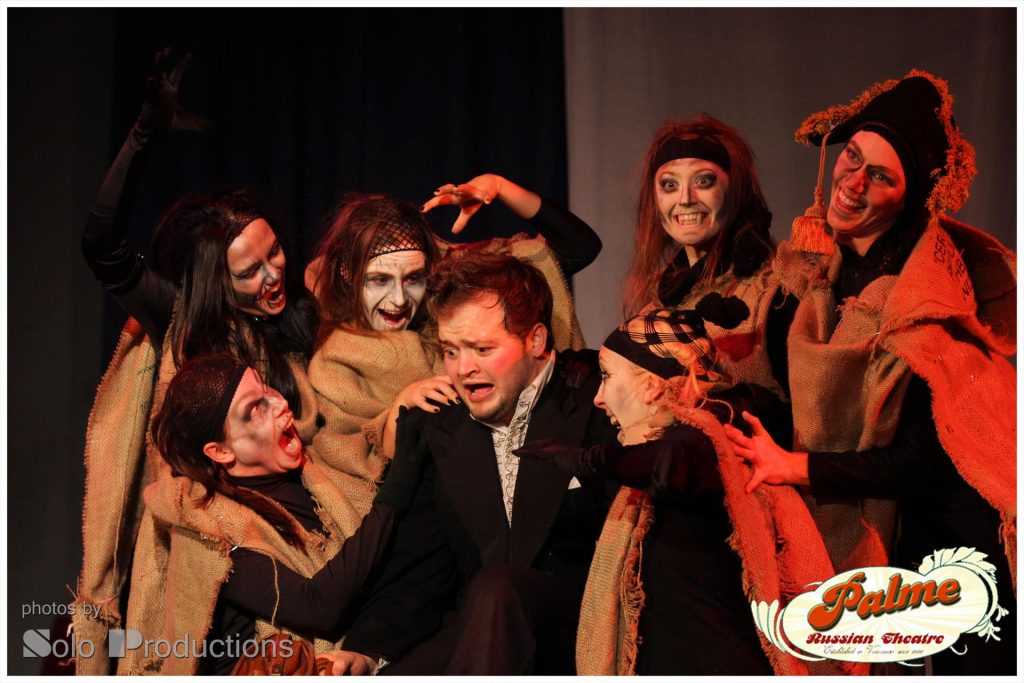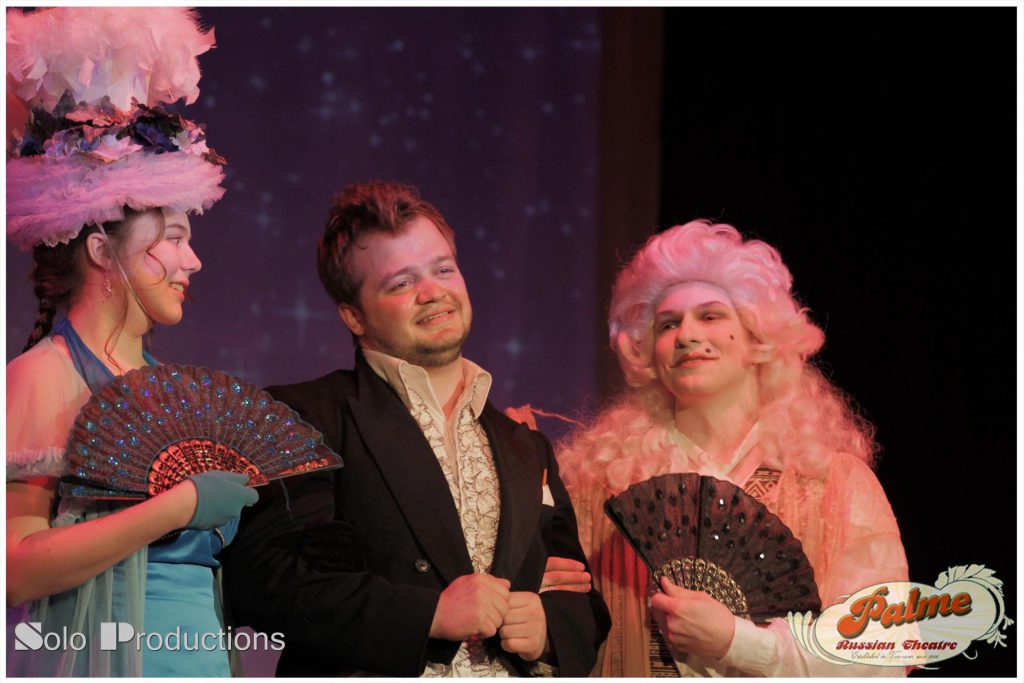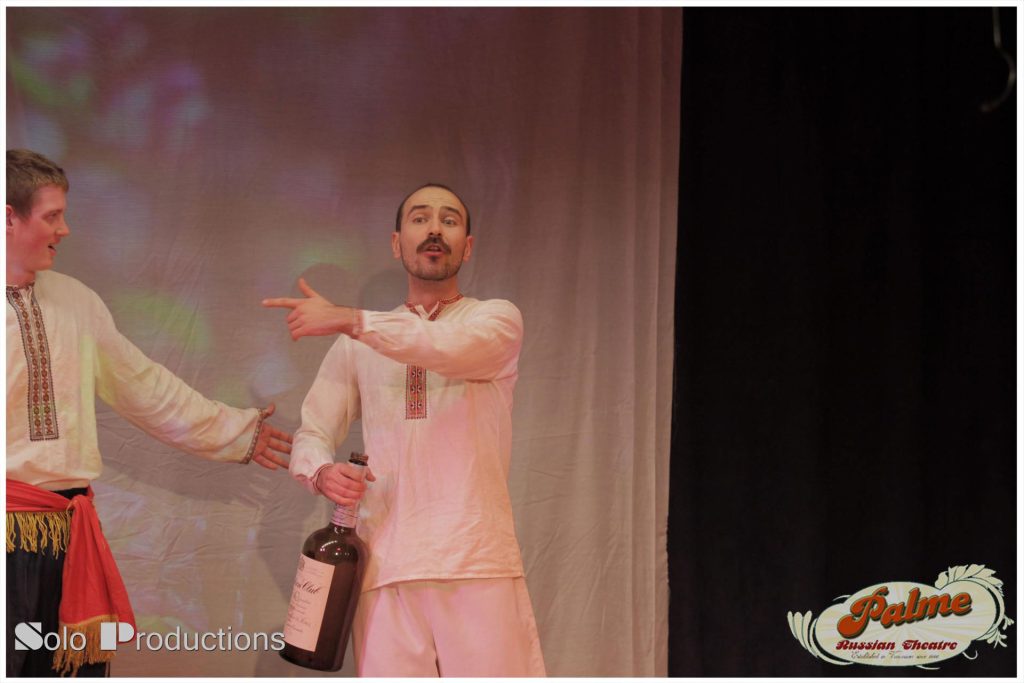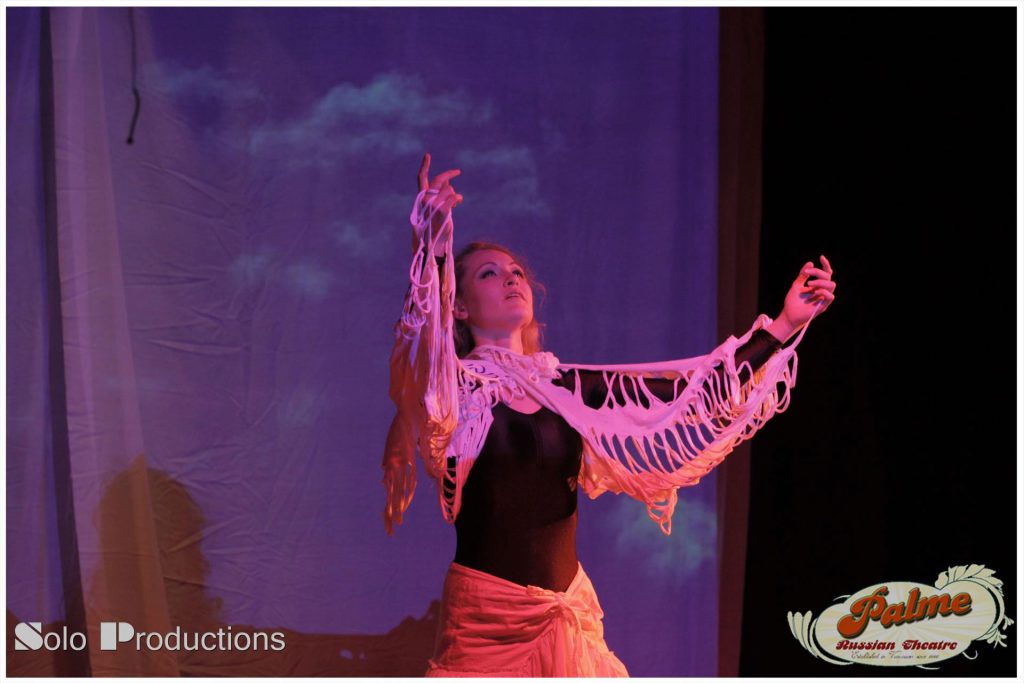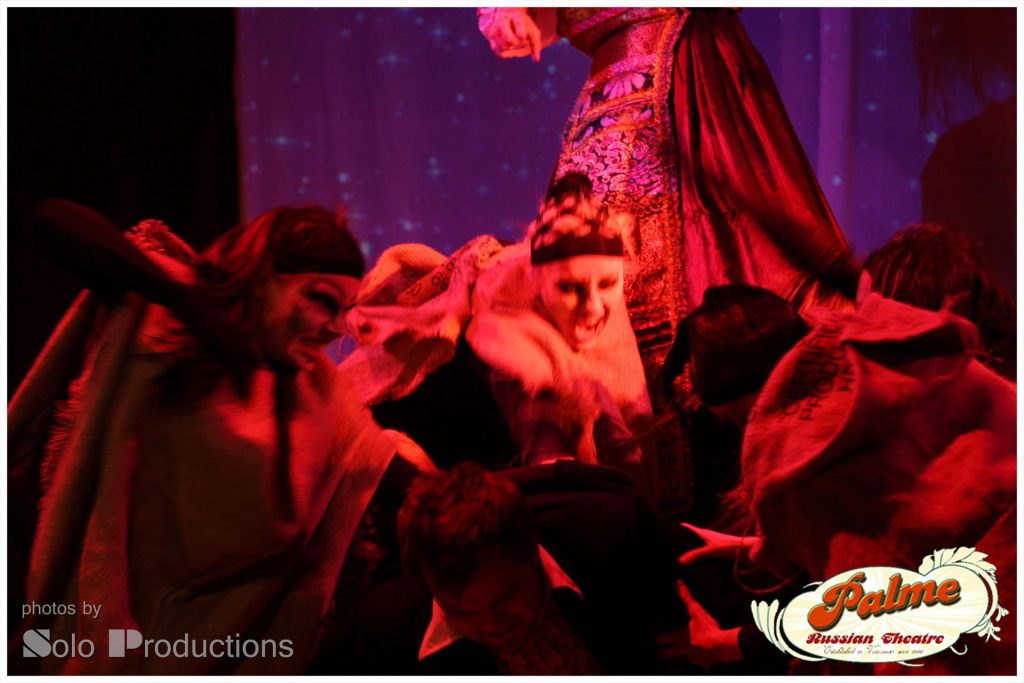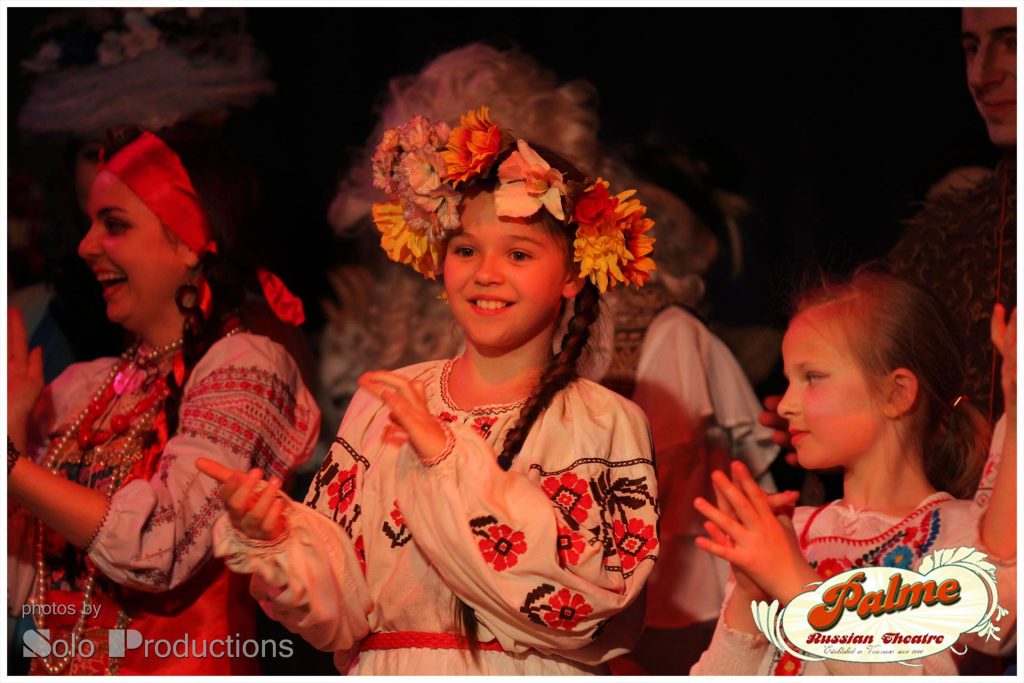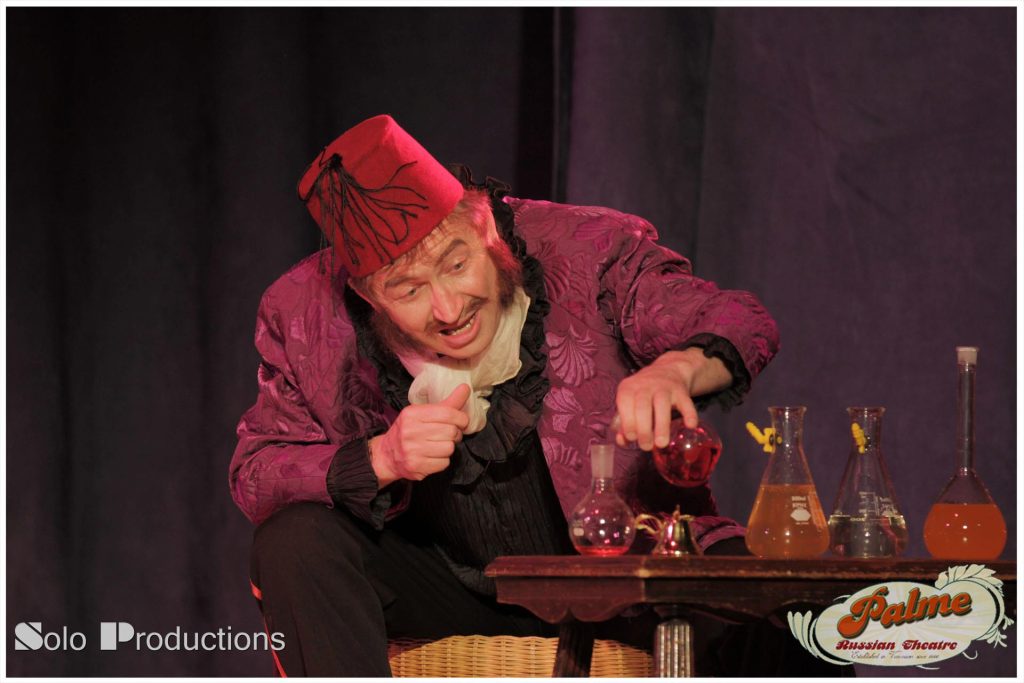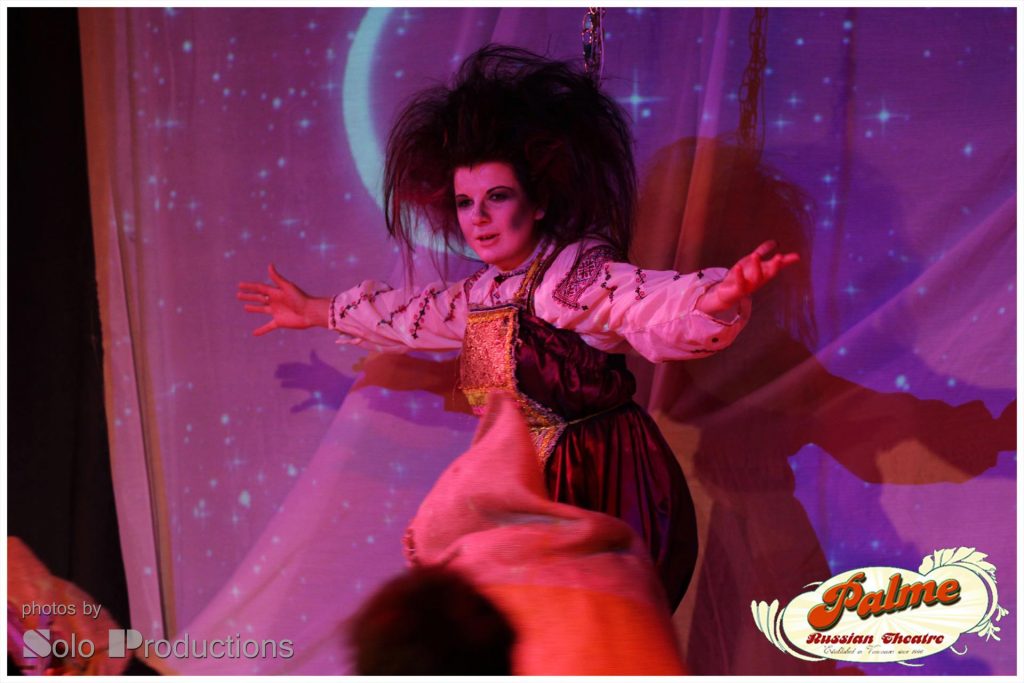Children’s imagination is a place that freely produces imagery and adventures. Lewis Carroll understood this very well, and he used his literary talent in order to uncover and immortalize stories that resonate the most with a child’s imagination. That is exactly how, on 4th of July, 1862, the beginnings of “Alice in Wonderland” were born, captivating both children and adults alike ever since.
Unfortunately, some stories are impossible to stage unless a stageworthy solution is found for key features. For example, Alice's many changes in size throughout the book. Tamara Cheliubeeva (director) has long ago dreamed of staging this fairy-tale, but did not take the leap until she found a device that is worthy of the audience. In Palme Summer Camp 2024, during the course of our endless quest to entertain and develop children, such a staging solution was finally found: Alexandra Rudis led a master-class with the kids and created a small-scale set of performances of “Alice in Wonderland” using shadow puppetry! Seeing how the shadows easily change size on the screen, Tamara found inspiration and determined to make the production a reality.
Our script was written from scratch by Alexandra Rudis, of course using the text of the original book, with the additional aim to connect the plot with our traditional New Year’s Celebrations. After the performance, the fairy tale characters played with the children and helped Father Frost give the gift of Holiday magic to the kids. “Alice” has truly become a part of our children’s repertoire that we take pride in!
Cast:
Alice - Kamilla Kobzeva, Vasilisa Kudinova, Maria Leyzerova
Mother/Queen - Oksana Gedz, Kate Atadzhanova
Father/King - Yury Boldyrev, Maxim Duman
Sister/Wet Mouse - Eva Kobzeva, Polina Leyzerova
White Rabbit - Daniil Chigrov, Irene Cheliubeeva
Lizard Bill - Viktoriia Kriukova, Eva Leyzerova, Benjamin Schiller
Frogs - Dmitri Petrov, Timothy Kutin, Maxim Cheliubeev, Pavel Kovalyov, Lalliana Kobzeva, David Kiselev, Alexandra Sprung, Daniel Vozdvizhenskiy
Caterpillar - Maria Leyzerova, Alisa Grigoryeva, Kamilla Kobzeva
Flowers - Ainsley Sprung, Alexandra Sprung, Polina Kovalyov, Polina Koen, Aleksandra Rutherford, Zoya Rutherford, Alice Artemova, Yeva Frid, Alexia Glivenko, Zareena Rahiman, Sonia Sidorenko
Cheshire Cat - Dina Bounine, Liza Grigoryan
Mad Hatter/Uncle Lewis - Alexander Bobrov, Nikita Shevchuk
March Hare - Irene Cheliubeeva, Daniil Chigrov, Evangelina Kobzeva
Sleepy Mouse - Kristina Polyakov, Milana Verrilli-Ahachinski
Cards - Vasilisa Kudinova, Irene Cheliubeeva, Evangelina Kobzeva, Alexandra Sprung, Eva Leyzerova, Kamilla Kobzeva
Creators:
Playwright - Alexandra Rudis
Director - Tamara Cheliubeeva
Shadow Puppetry - Alexandra Rudis, Eugene Grabovy, Sonia Bounine, Marina Zakharova
Technical Director - Phillip Dykman
Sound - Alexandra Anoshina
Lights - Olga Sharevich
Set Design - Lilia Aniks
Set Technicians - Max Duman, Vladimir Aniks, Lilia Aniks, Tamara Cheliubeeva
Costumes - Larissa Bushmina
Makeup - Olga Sharevich, Elizaveta Grigoryan
Graphical Design - Olga Sharevich, Eugene Grabovy
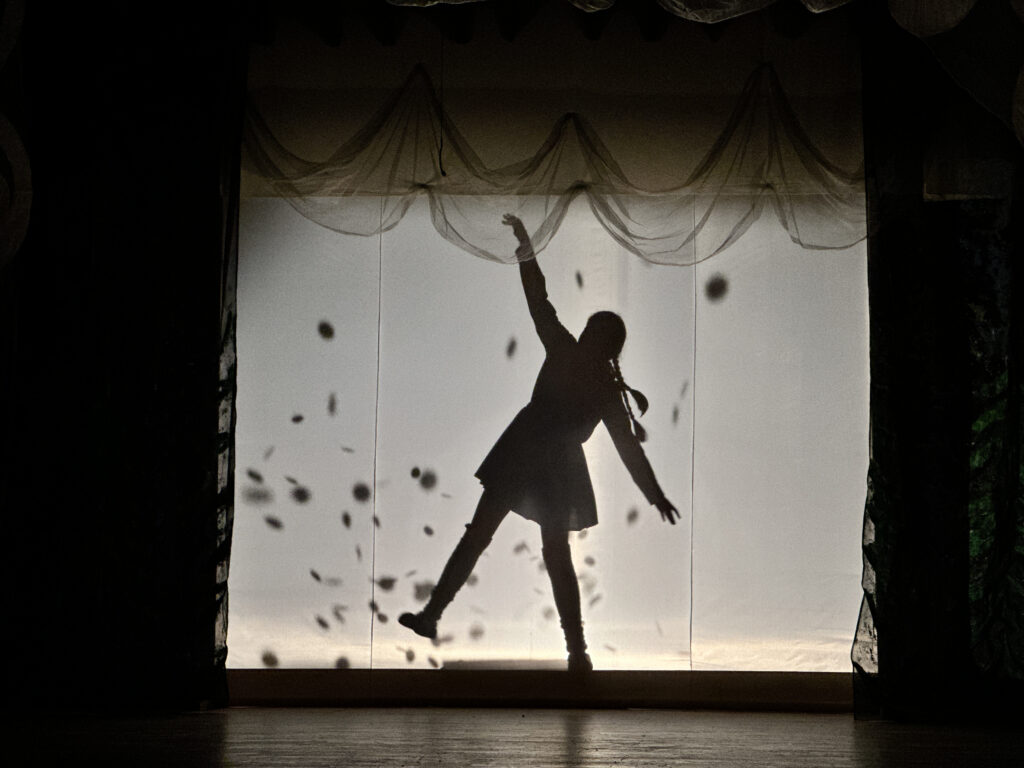
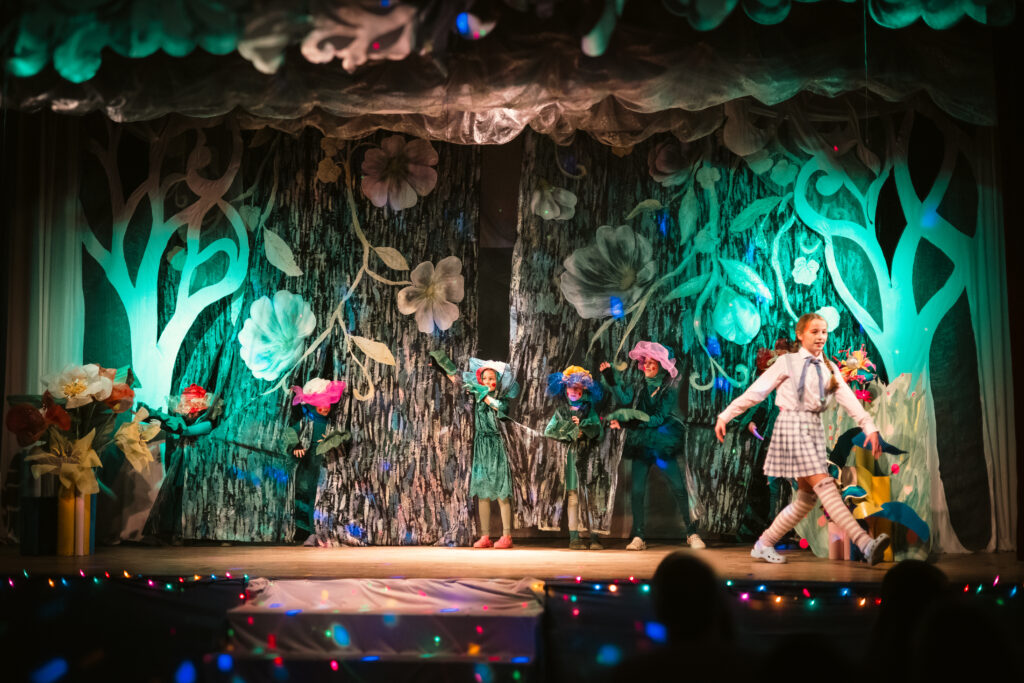
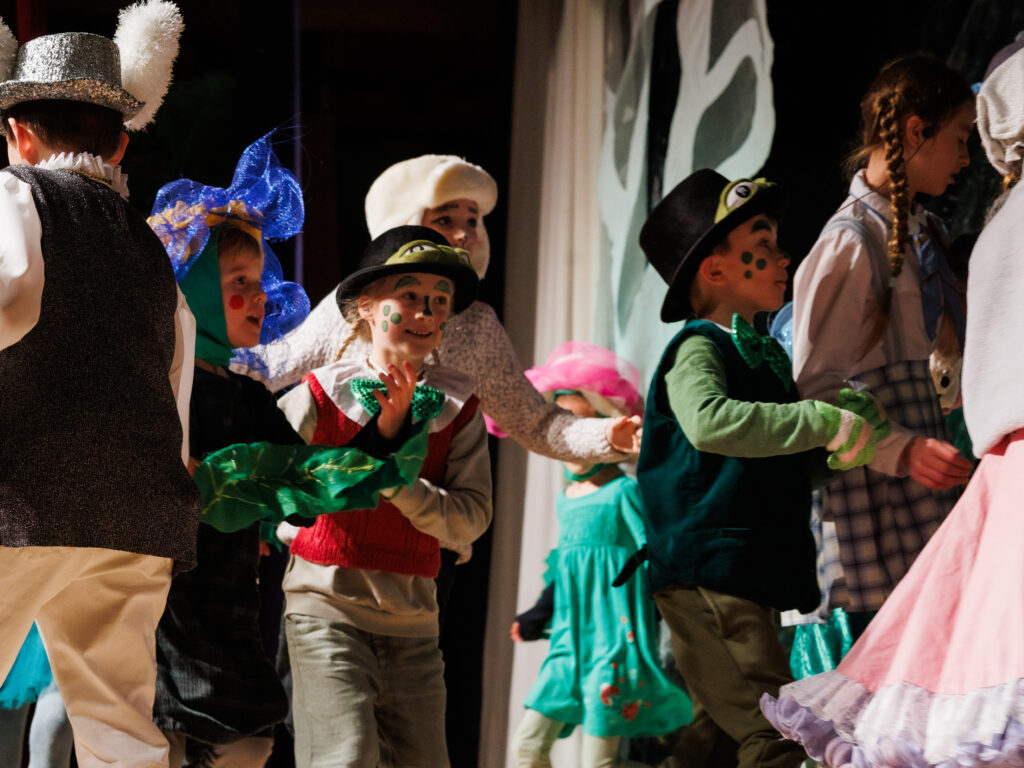
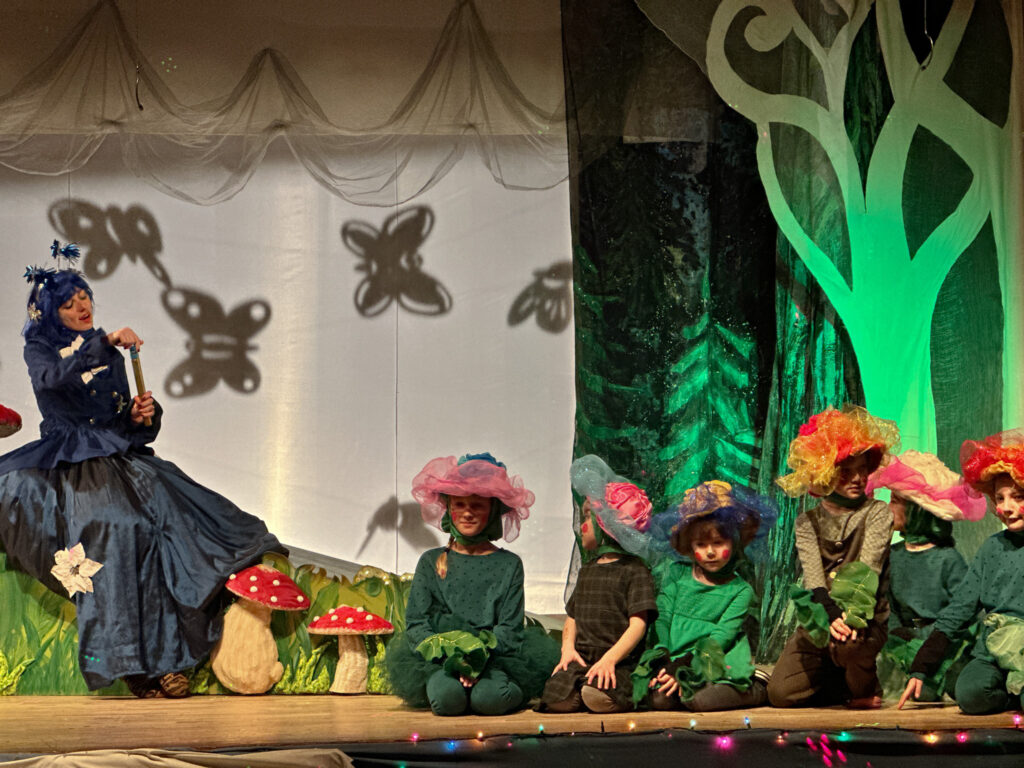
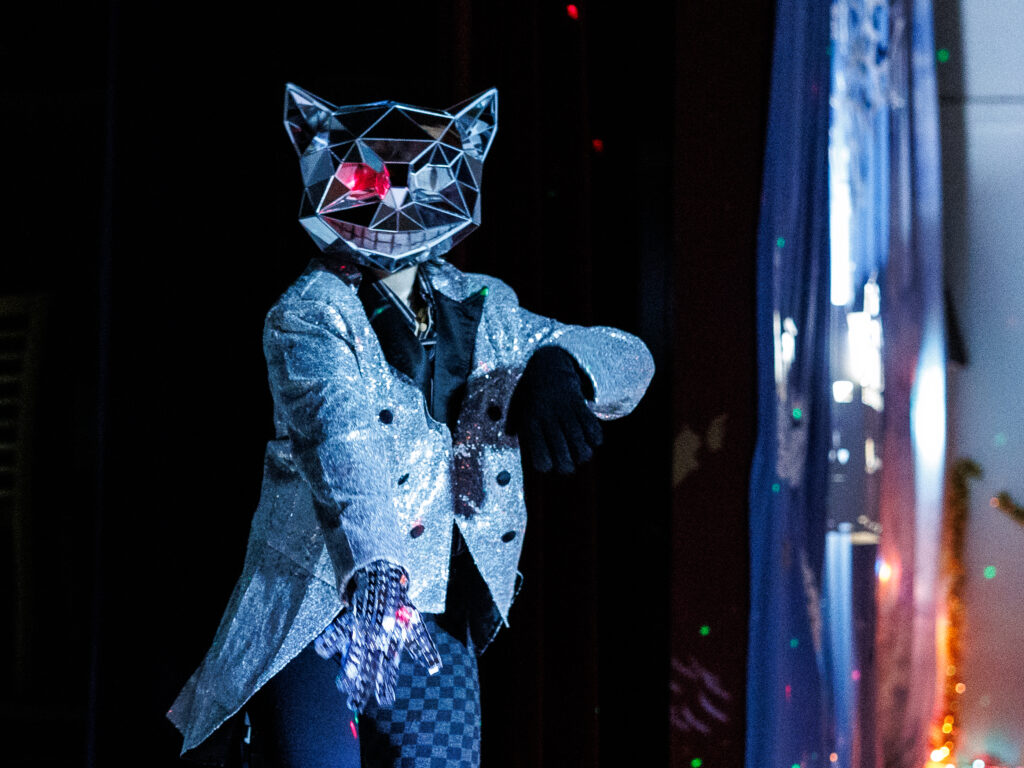
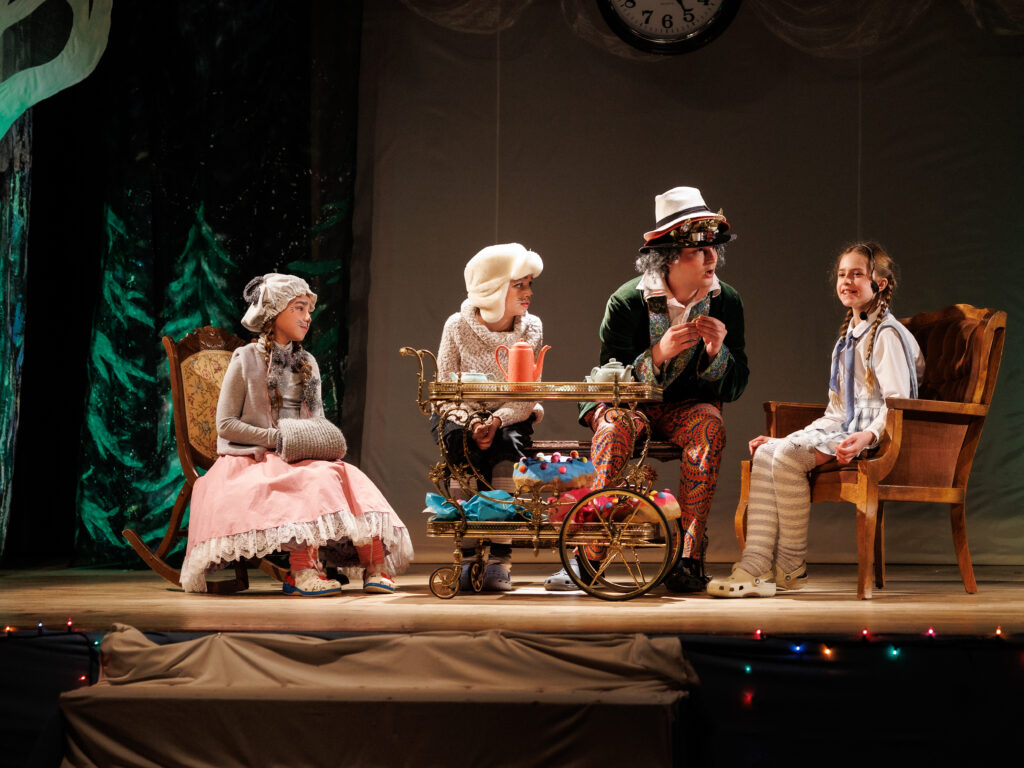
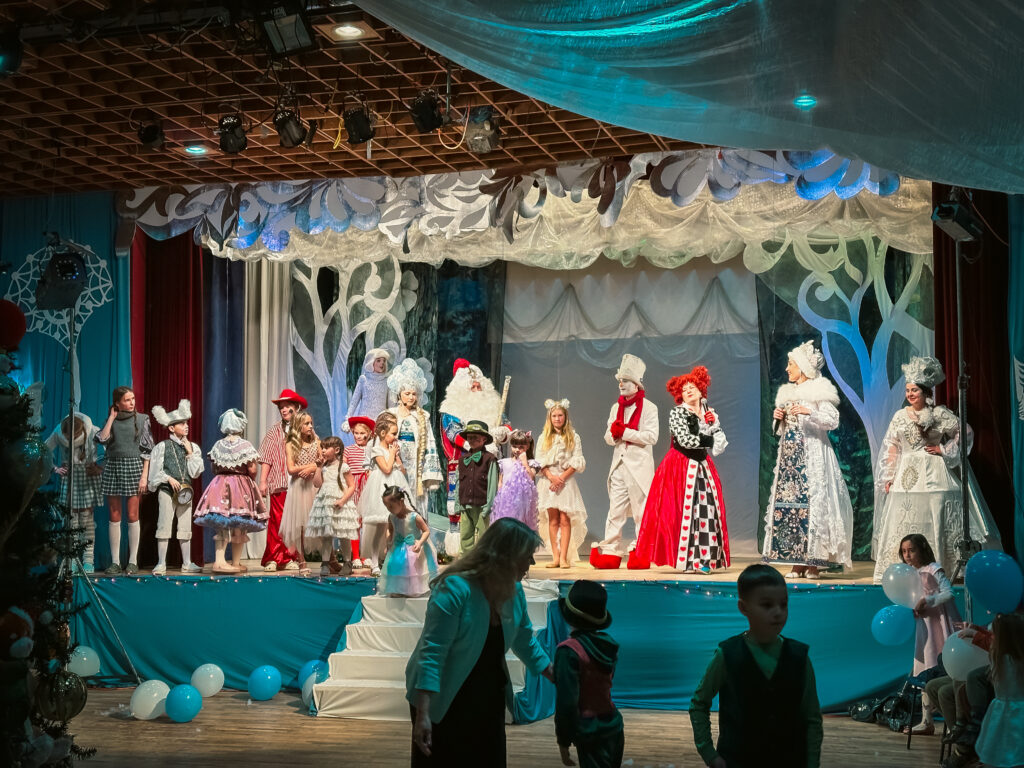
For us, this legendary and multi-faceted play talks about bravery. The kind of bravery that is necessary to live a full human life. The bravery to love and act honestly.
In order to remind his wife of his endless love for her, The Magician creates people and even transforms a bear into a human. And they start acting exactly as anyone would. The characters are vulnerable, self-deterministic, and full of imperfections. Either intentionally or not, they put up obstacles on their way to happiness. Everyone who has ever found and lost (and then maybe found again) will recognize themselves within the characters. After all, it is so difficult to be a real person!
Evgeny Schwartz is one of our most beloved playwrights. We first staged this play 22 years ago under the direction of Oleg Palme, on a tiny stage. The 2024 production (under the direction of Egor Revenko) has allowed us to “spread our wings” in a larger space and with a more experienced cast.
A word from the director:
During these particularly troubling times, we are all looking for something that will soothe the soul - a way to remember that loving and believing in love is essential to every human life. So, when we remembered Schwartz’s beloved play, which was, staged by Oleg Palme 22 years ago, we thought: what a perfectly wonderful way to warm the hearts of our audience!We hope that this fairy tale for grown-ups will remind you to foster your inner child, and to love fearlessly. Love your close ones, love your craft, and create spaces where love can thrive. We hope to re-ignite your zest for life and look at the world through a bright lens of an open heart.
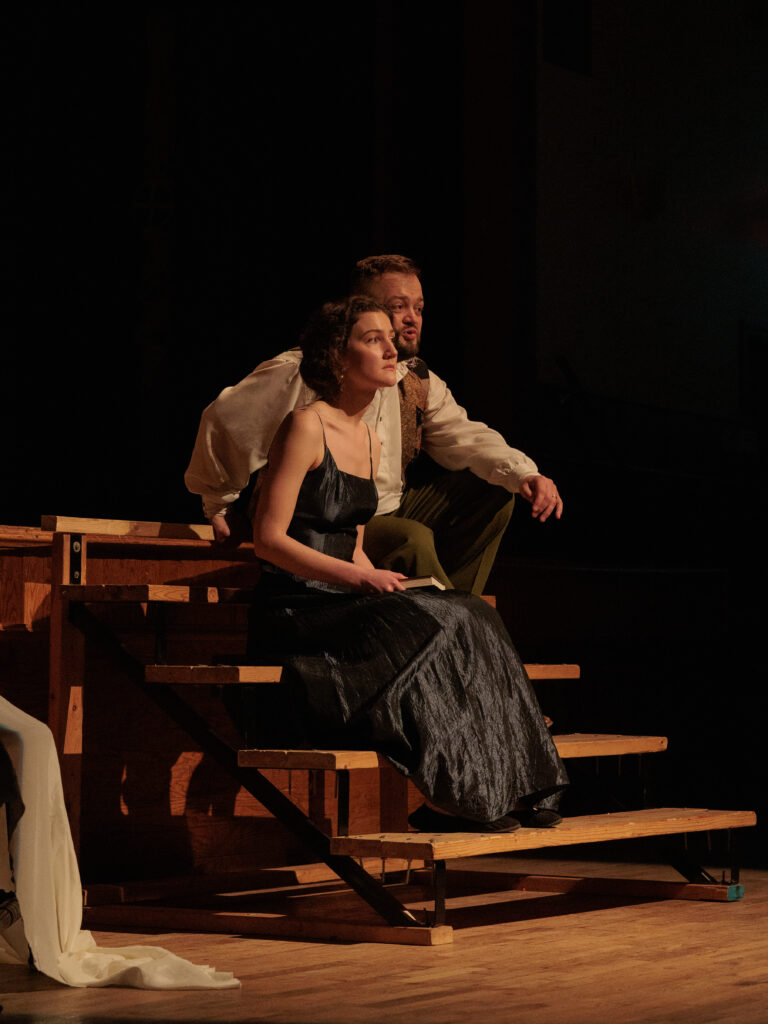
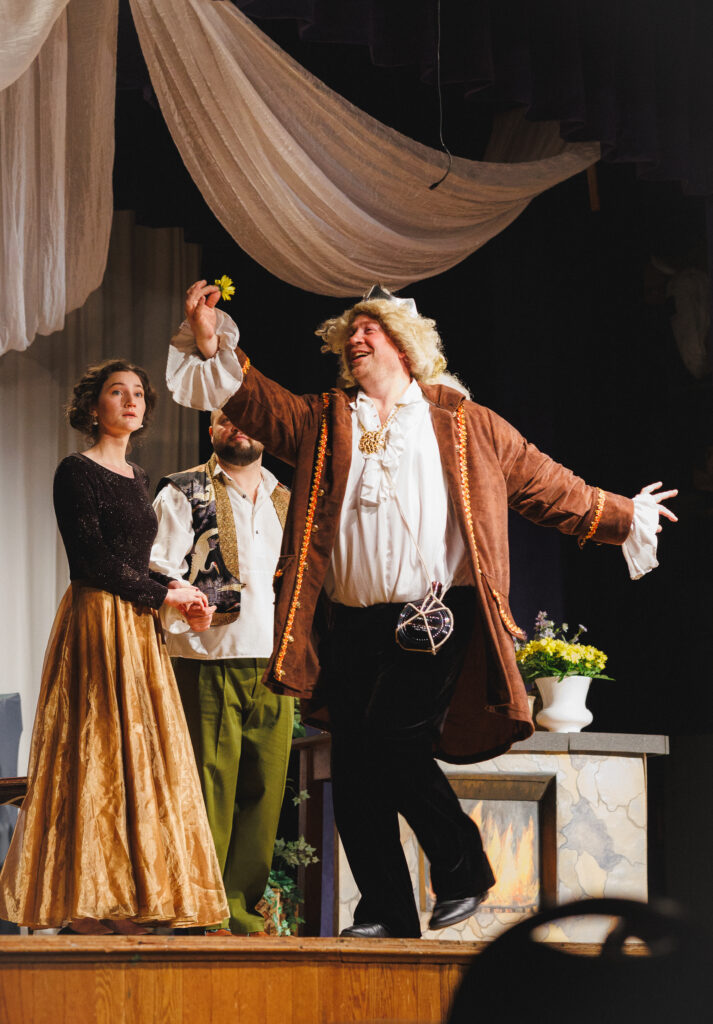
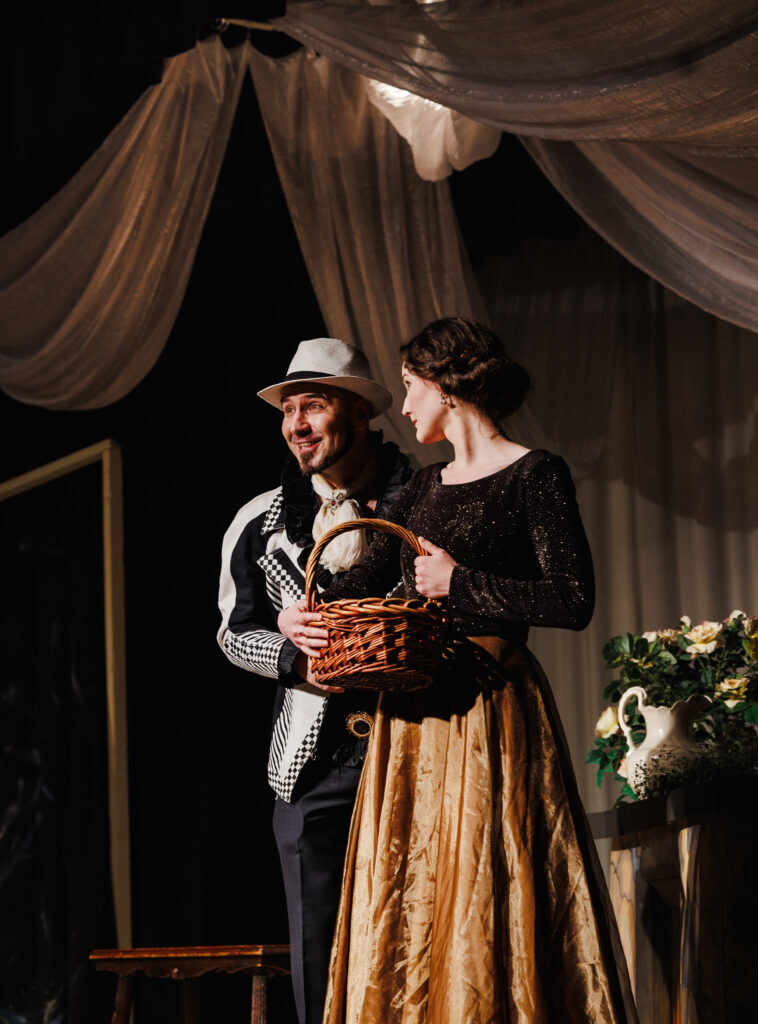
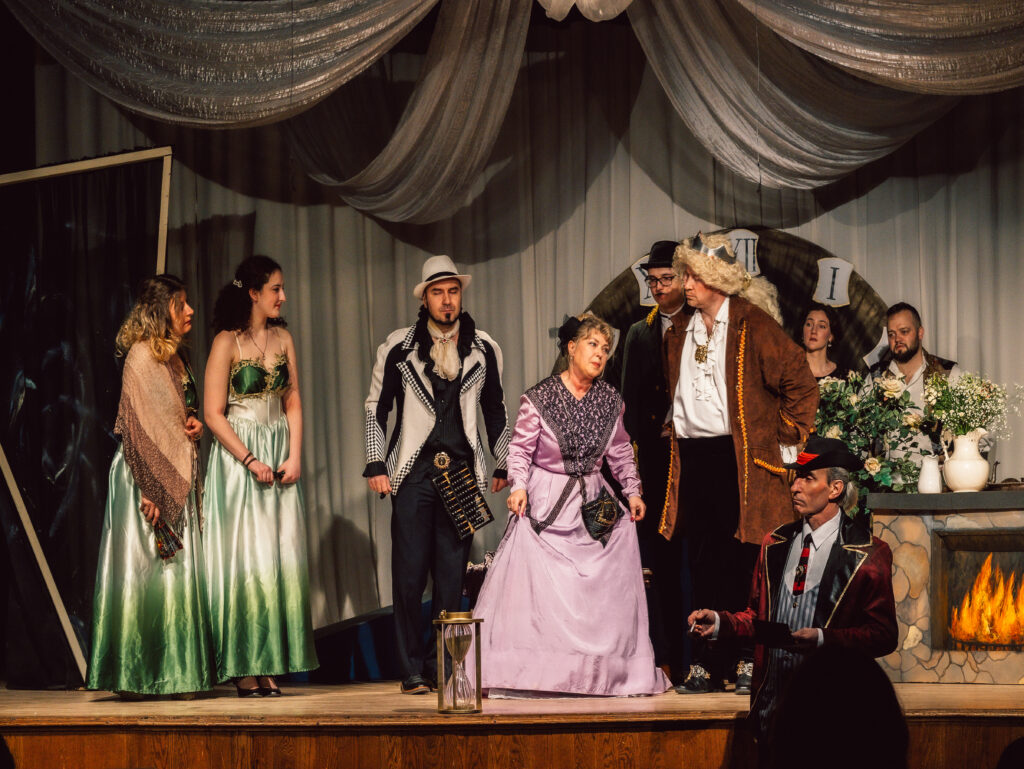
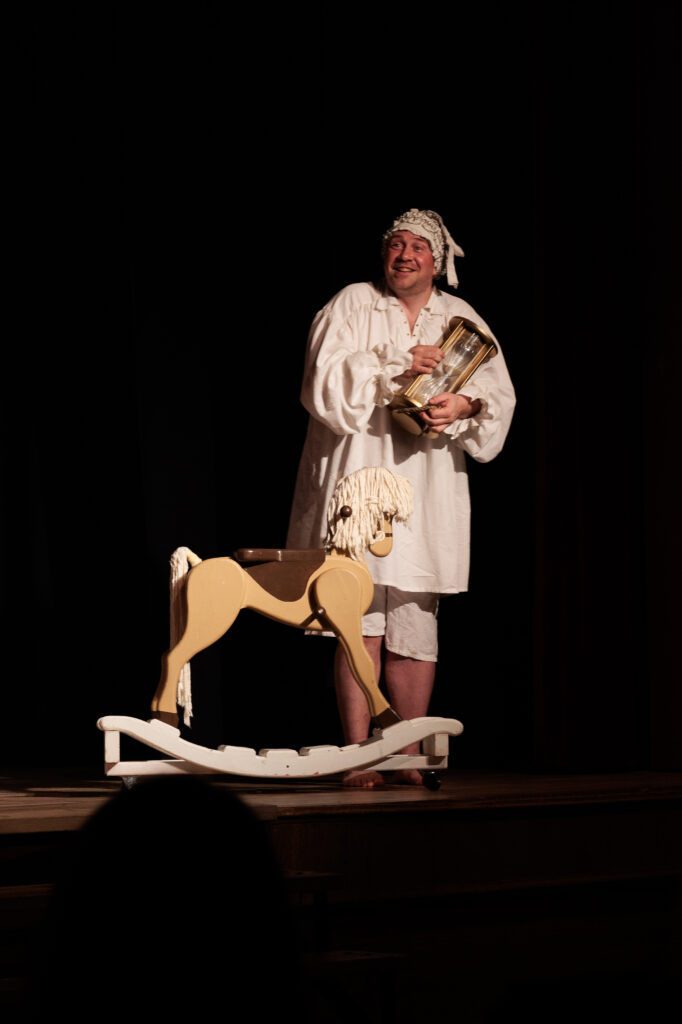
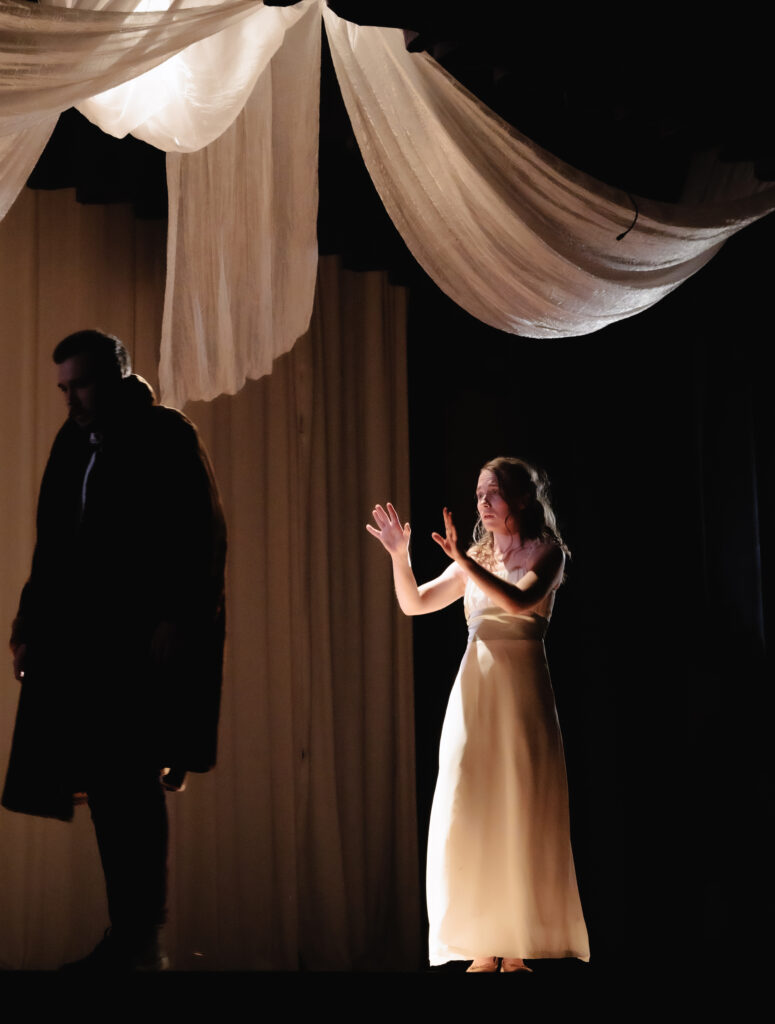
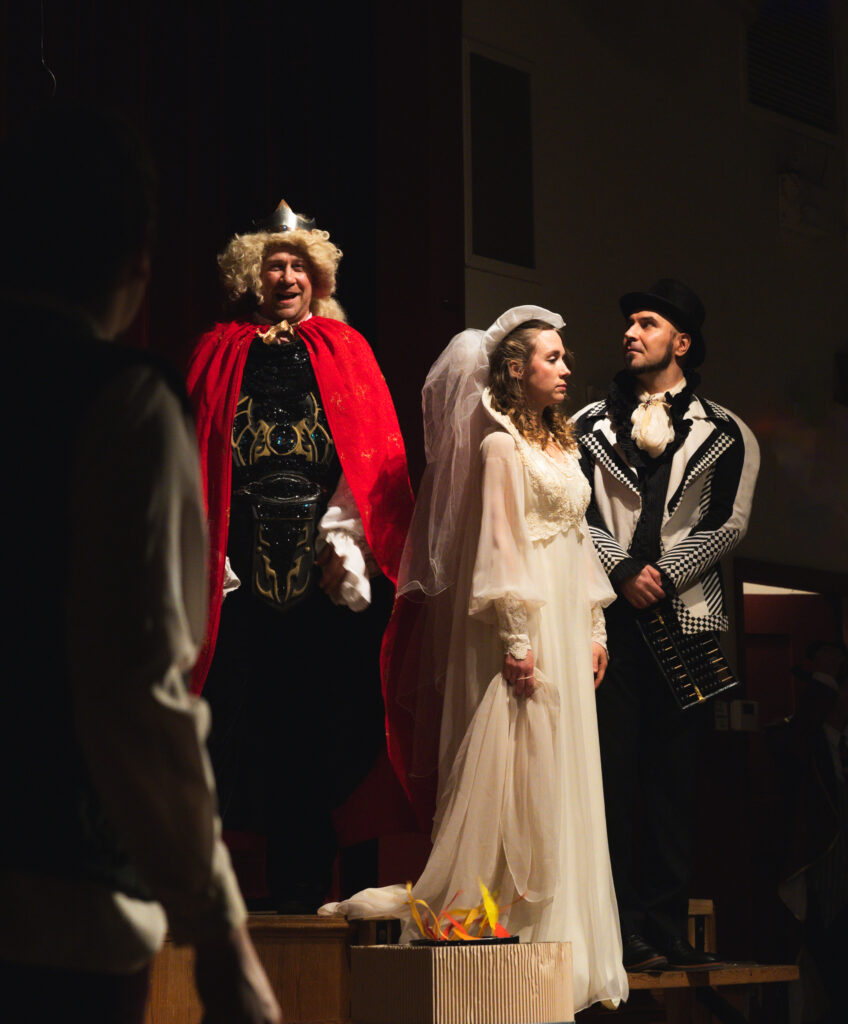
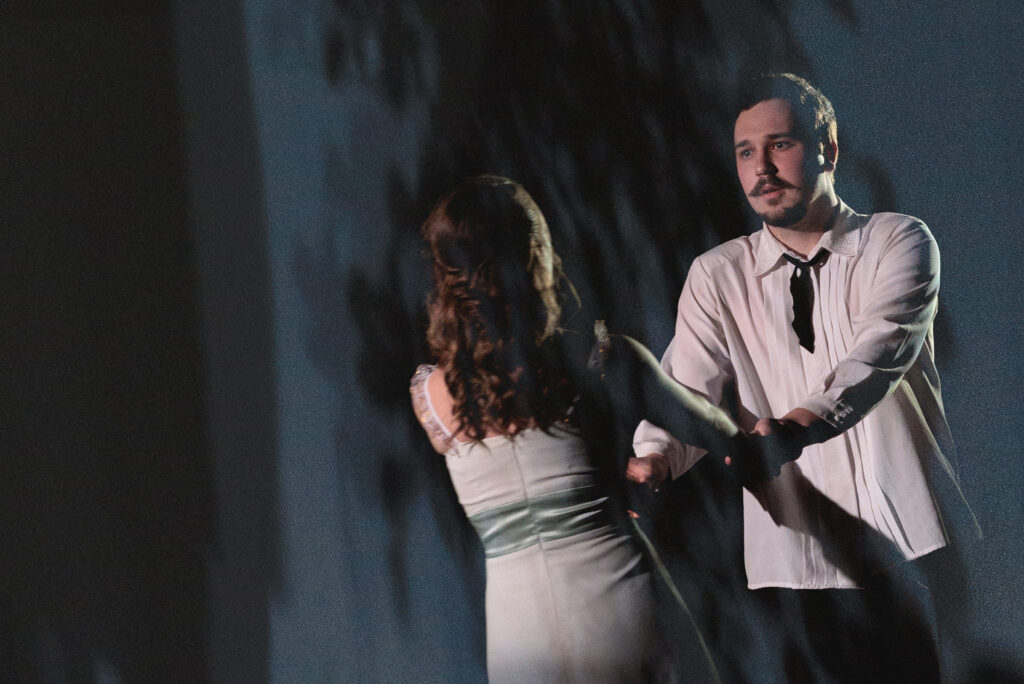
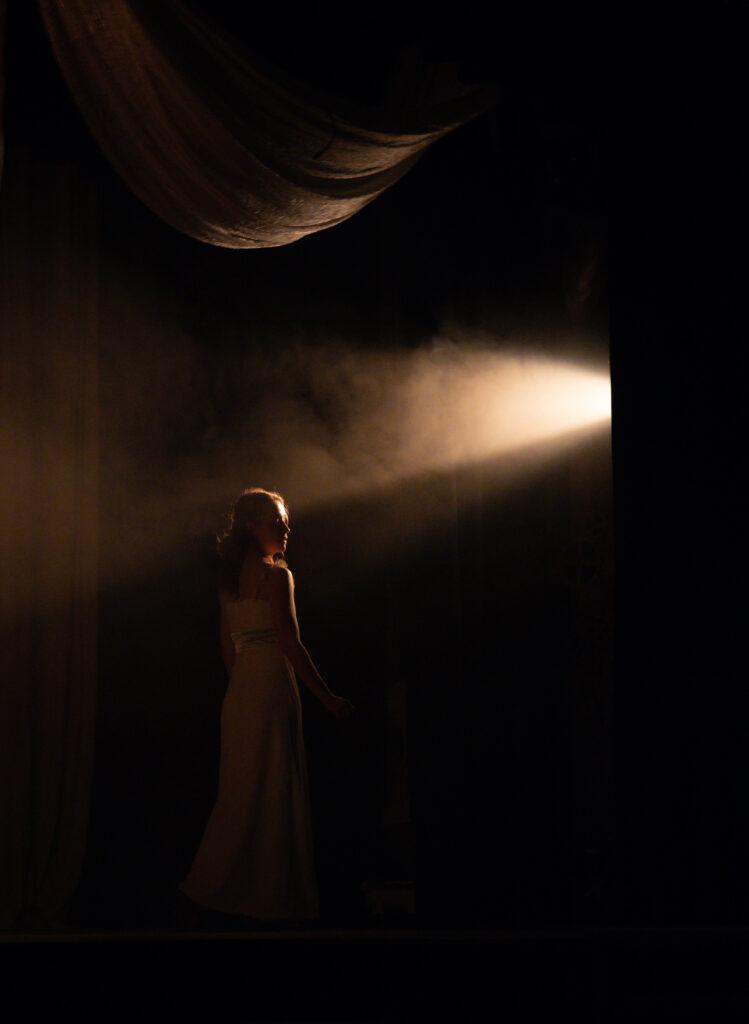

Cast:
Master - Egor Revenko
Mistress - Asya Savelyeva
Bear - Misha Bezruchko
King - Maxim Duman
Princess - Tamara Cheliubeeva
Minister of Administration - Eugene Grabovy
First Minister - Alexander Bobrov
Court Lady (Emilia) - Olga Novakova
Fraulein Orinthia - Sonia Bounine
Fraulein Amanda - Oksana Gedz
Tavern-Keeper (Emil) - Yuri Balchugov
Hunter - Yuri Bo
Hunter’s Apprentice - Valentin Glivenko
Executioner - Liza Grigoryan
Live Basket - Irina Cheliubeeva
Creators:
Director - Egor Revenko
Director’s Assistant - Asya Savelyeva, Tamara Cheliubeeva
Technical Director - Phillip Dykman
LIghting - Alexandra Rudis
Sound - Aleksandra Anoshina
Choreography - Nadia Dobrianskaia, Tamara Cheliubeeva
Set Design - Lilia Aniks
Decoration - Maxim Duman, Vladimir Aniks
Costumes - Larissa Bushmin
Makeup - Margarita Kazantseva-Smolyakova
Artistic Director - Lilia Akhachinskaia
Administrator - Olga Novakova
Graphic Design - Igor Bazilevskii
Live Translation - Maria Sokolova, Ivan Zverev, Olga Sharevich
Oleg Palme and artists of Palme Theatre staged Hedda Gabler with respect to ideas which inspired Henrik Ibsen. We strove to examine the underlying causes behind human behavior and looked at the characters of the play as personified concentrations of ideas. Dealing with the conflict between a wish of self realization and expectations ascribed to the individual within the family circle, we explored its traumatic impact on the human soul.
Through dance, movement and elements of shadow theatre, our visually and emotionally rich show speaks directly to the minds and hearts of the public about destructive forces of Hedda’s unconscious mind. In contrast, this coexists with realistically performed characters, resolving their ambitions in their vocations, creativity and love towards others.
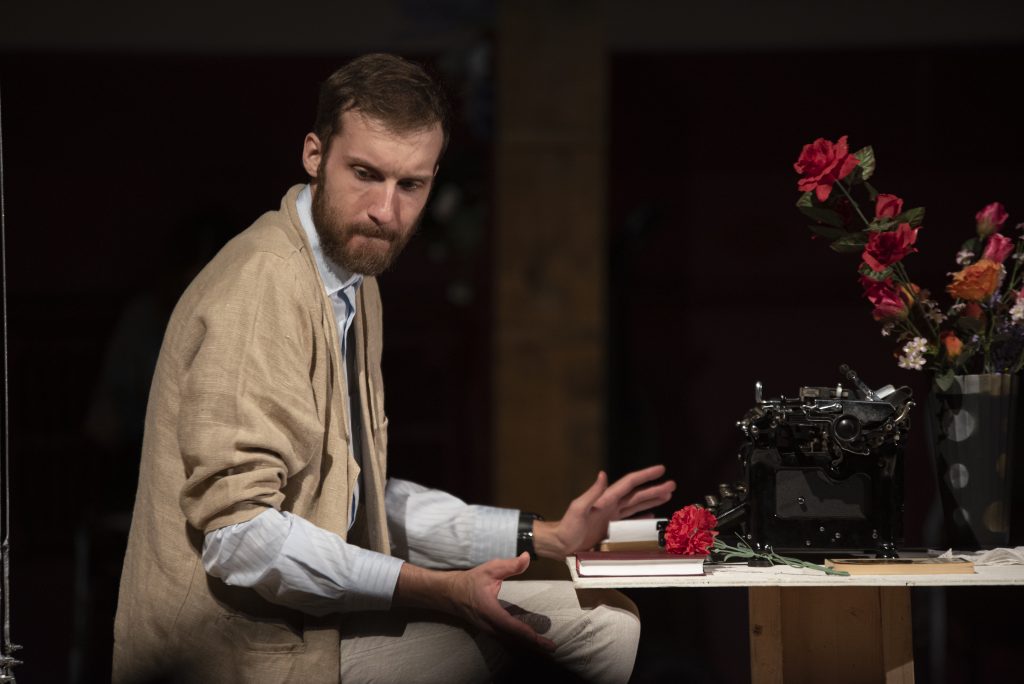
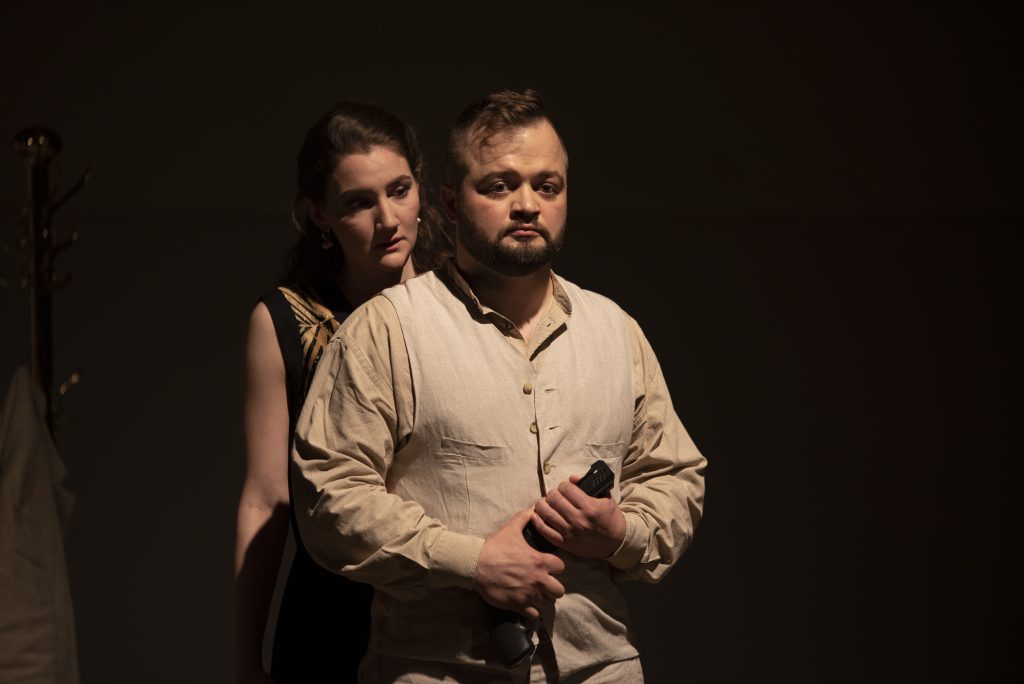
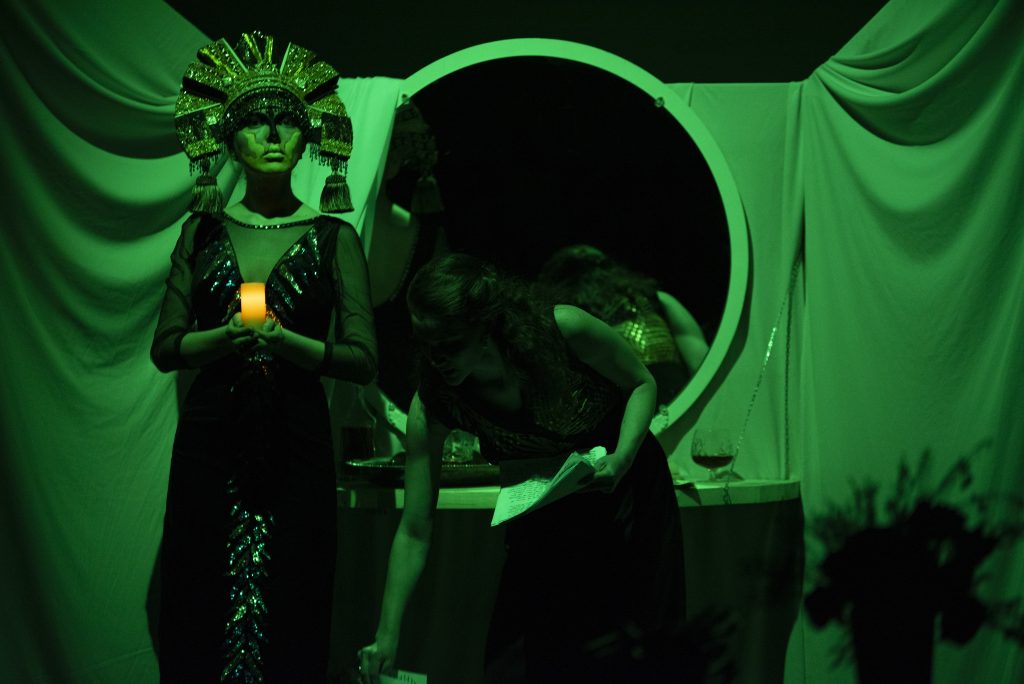
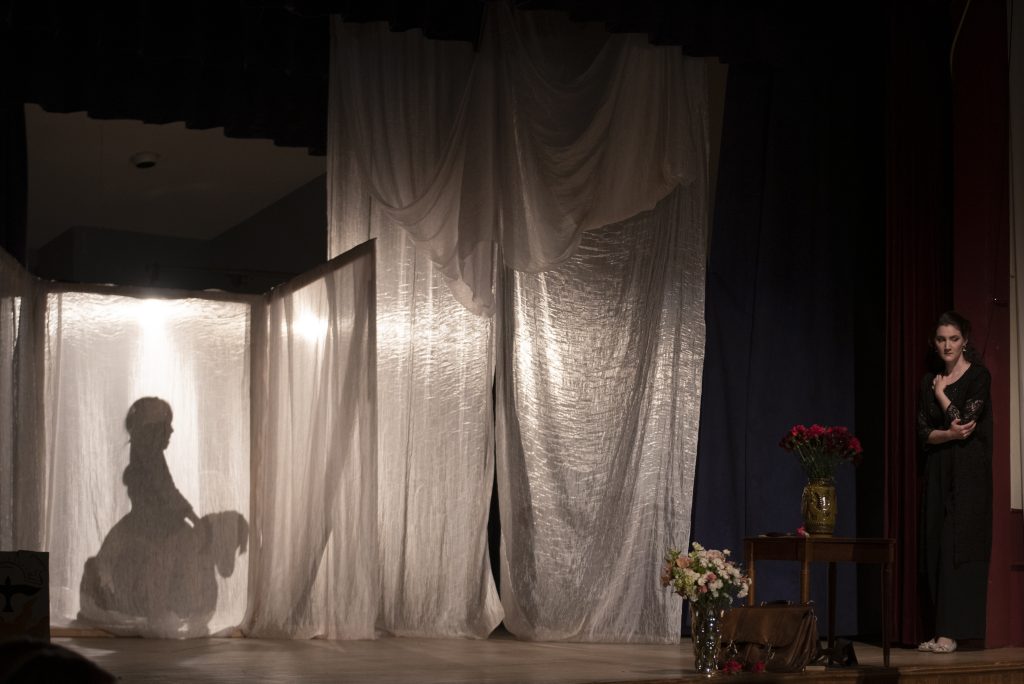
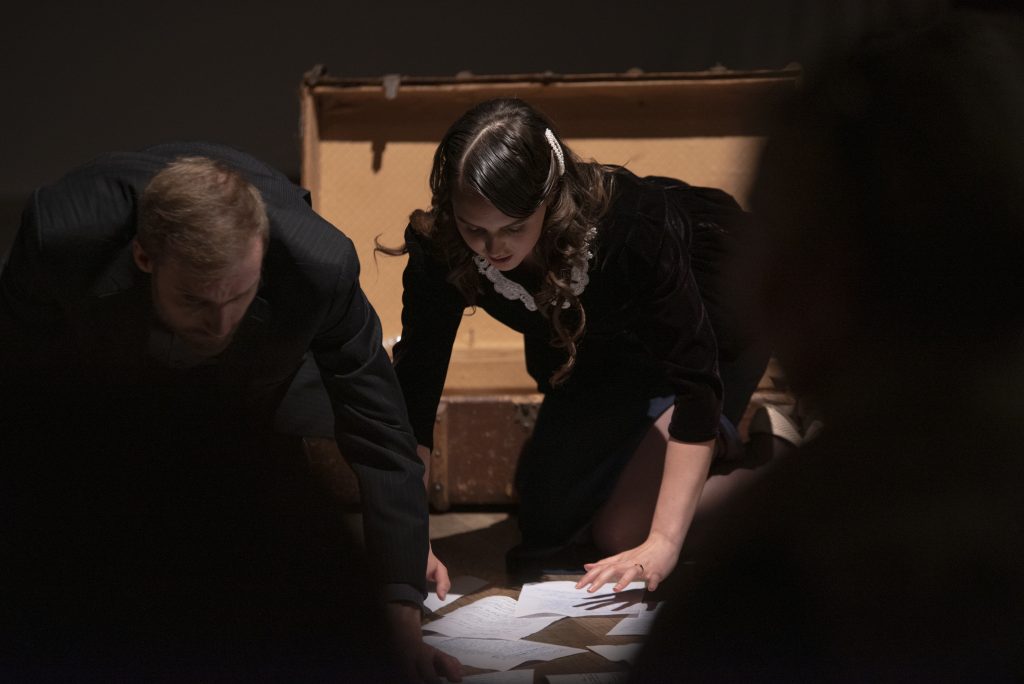
Our Hamlet is dark, festive and spectacular. Actors are flirting, dancing and fighting right beside your seat. We created the show on the premises of the original story and on the foundation of Shakespeare’s play. We’ve combined the almost-forgotten Scandinavian legend from the eleventh century, the famous Shakespearean tragedy about Danish rulers, and, in some sense, the story that everyone finds unexpectedly close and understandable. The pain of loss, the craving for justice, the passion of love - all pushed to their limits.
We are excited to present to you Palme Theatre’s first work on a Shakespere play. Even though we are just a small Russian-language theatre company, we have under our belt such tough-to-stage classics as Chekhov’s The Seagull and Gogol’s Dead Souls. Now Hamlet is the pride and joy that we want to share with you.
Our gratitude goes out to those who made this production possible: the technical and creative team, to our patron Vladimir Liu Mingtai and, of course, to you for sharing this experience with us.
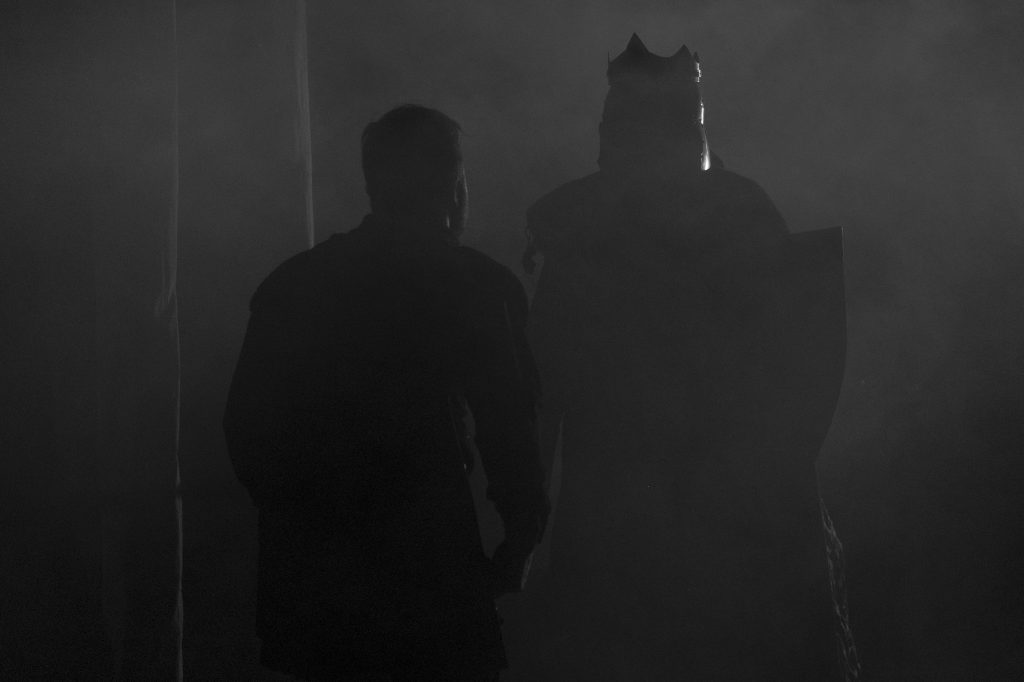
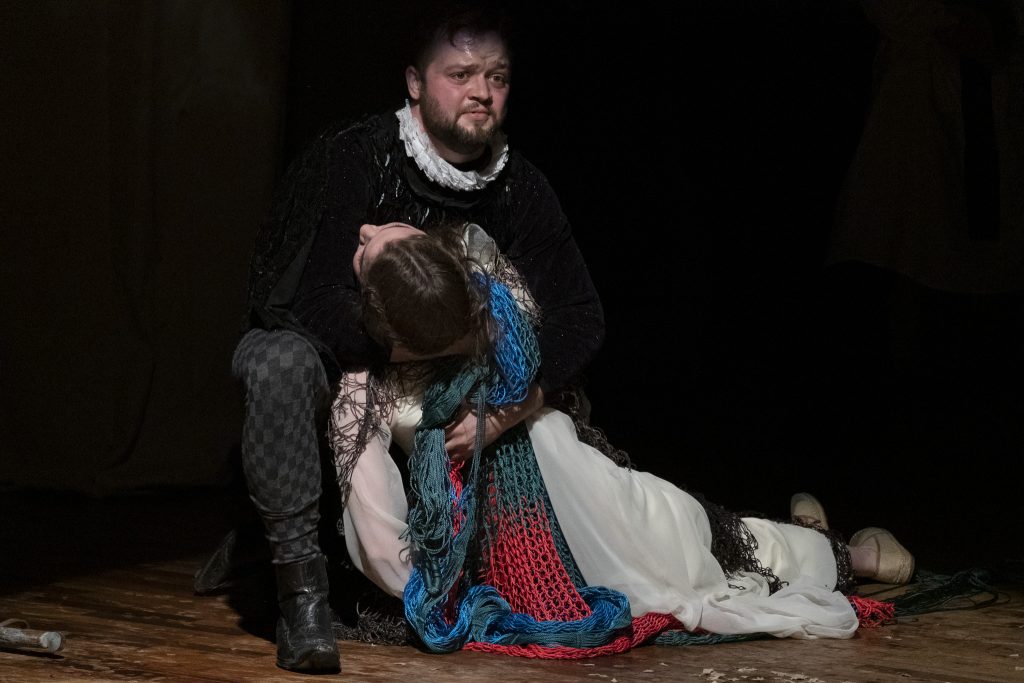
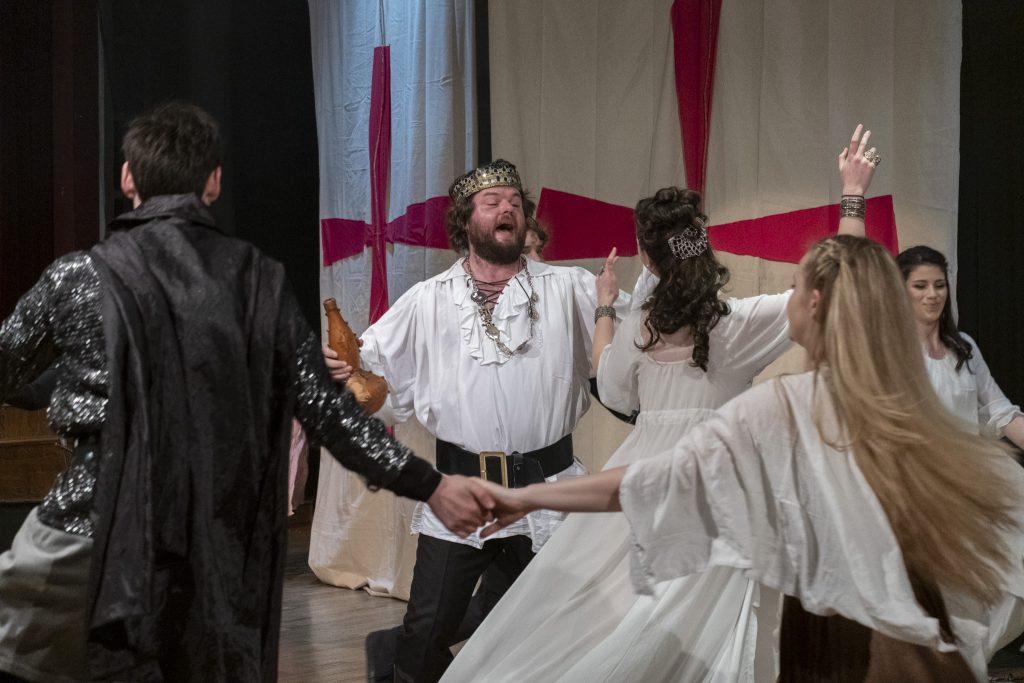
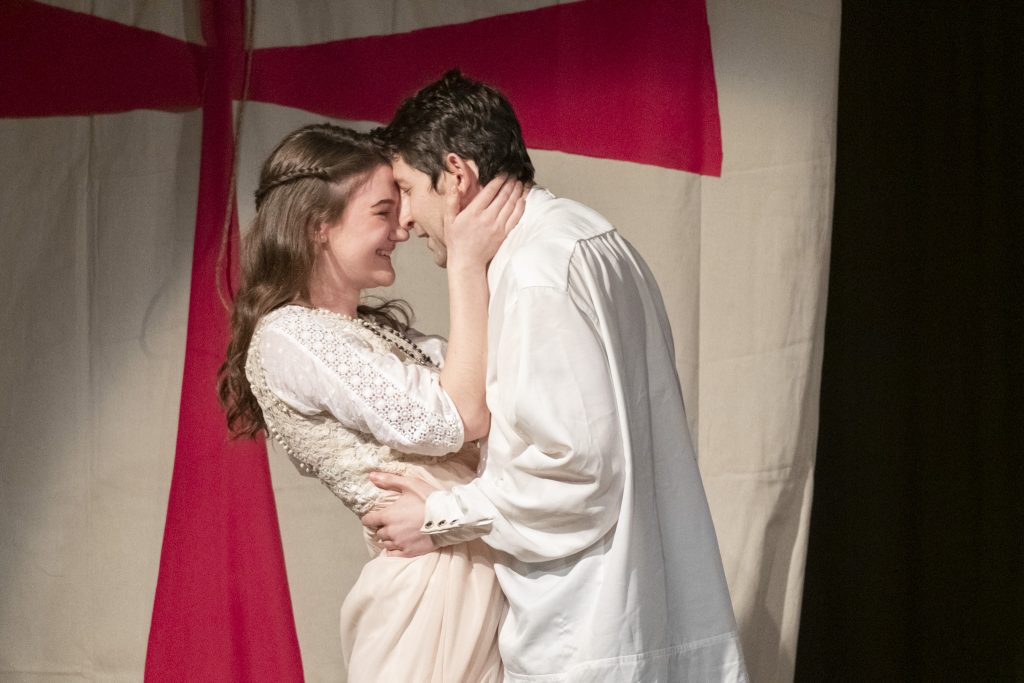
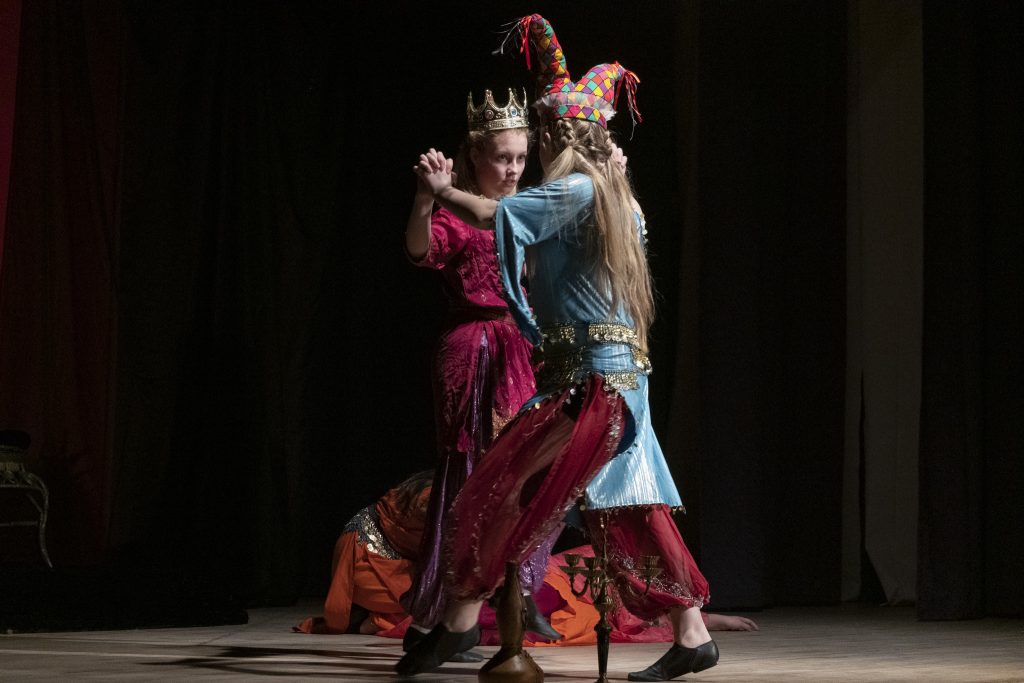
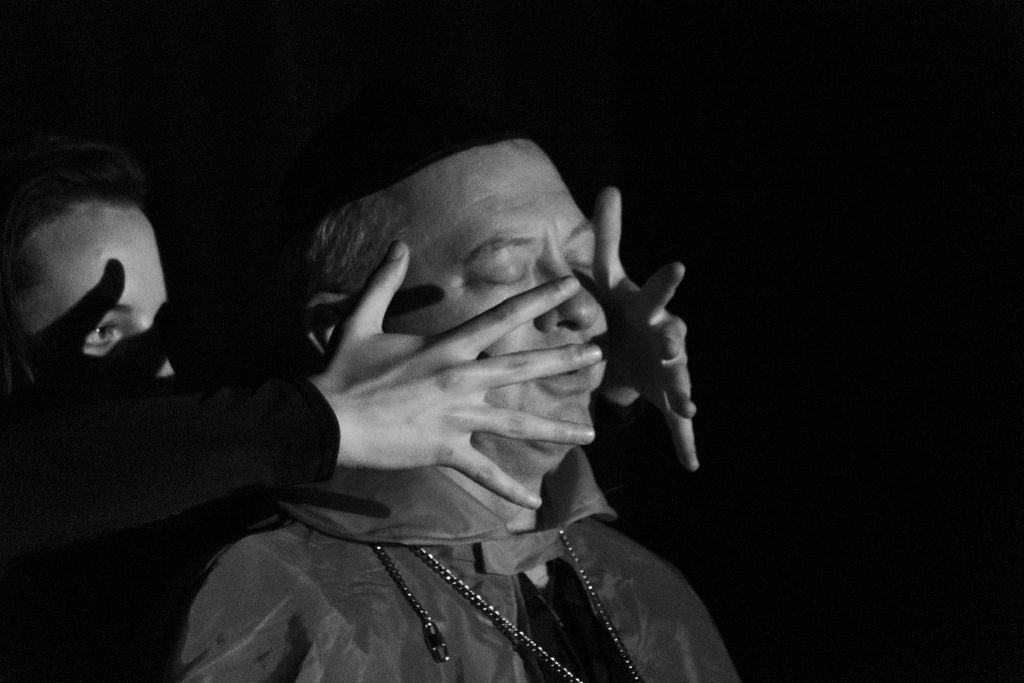
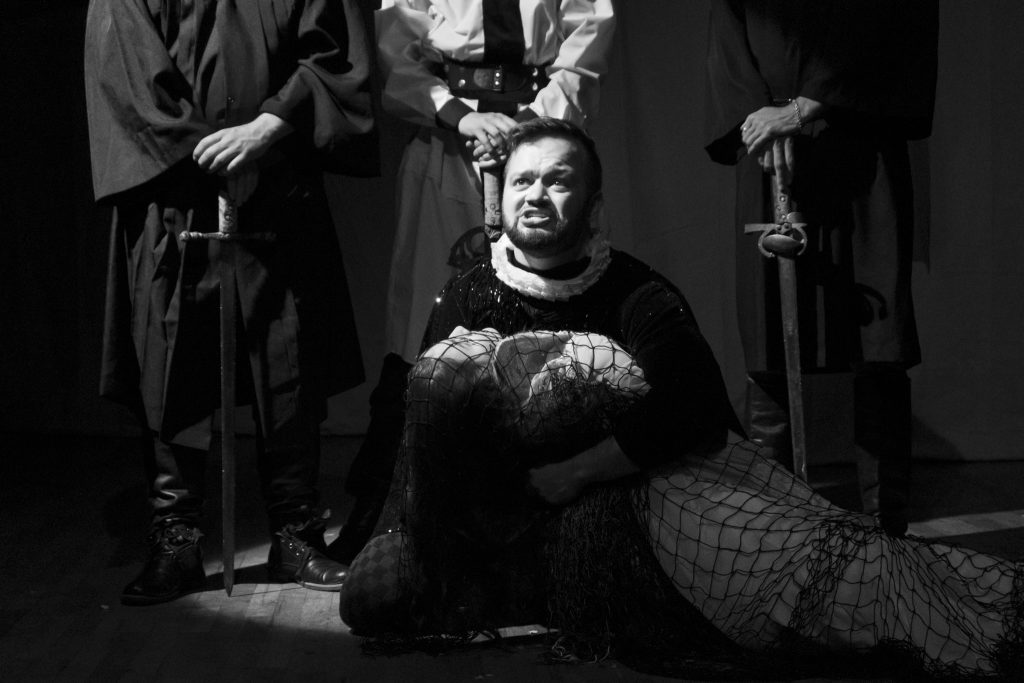
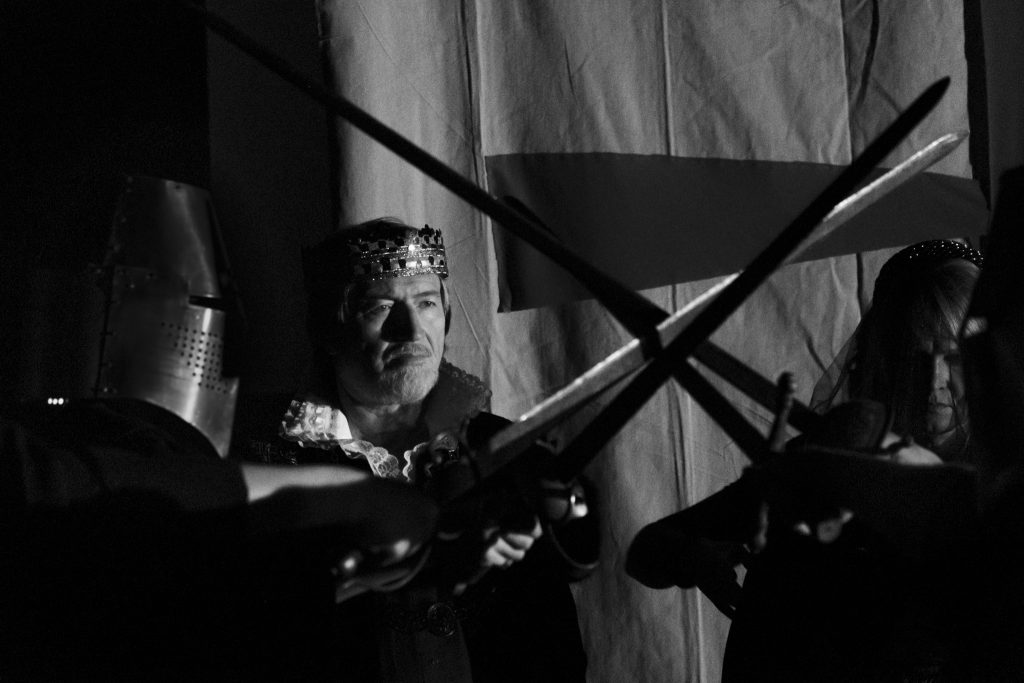
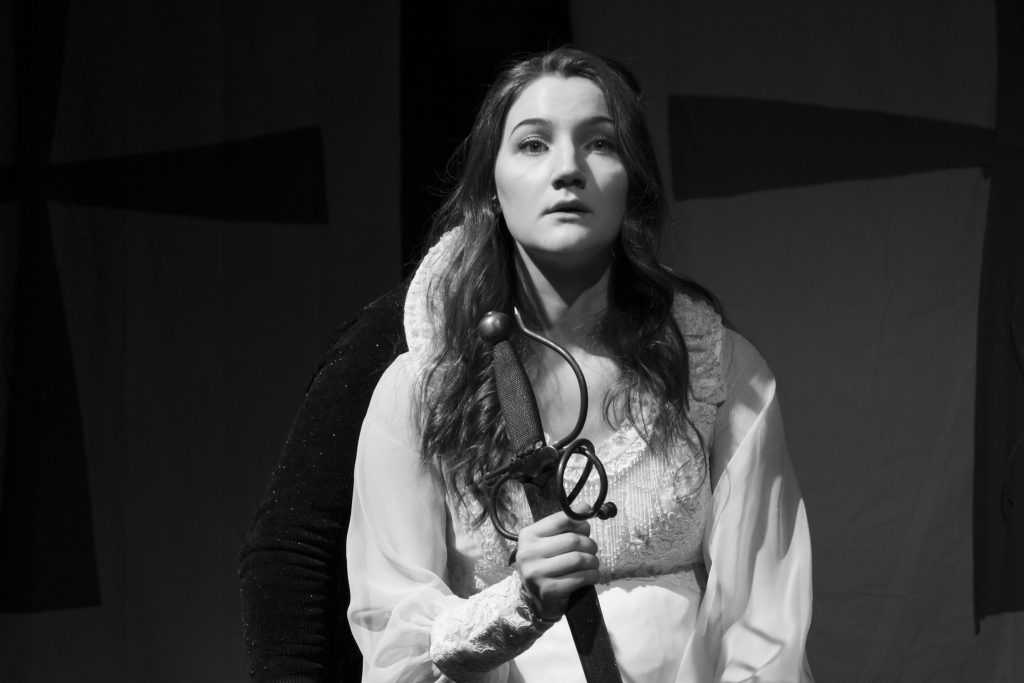
Based on a French comedy by Robert Thomas – with synchronous translation in English
April 23, 27, May 14, 18, 2017
The play takes place in Paris, within the notary public offices of Mètre Roche, where Alice Postic, a bubbly and talkative secretary, works at the front desk. One evening, after everyone has left, she discovers Roche’s body with a knife in his back. She calls the police, but is so nervous that she loses consciousness immediately after. When officer Maximin arrives, the body is nowhere to be found. The case is then taken up by Inspector Grandin, nicknamed “Iron Head”, in whom Alice recognizes an old childhood friend.
Cast:
Аlice Postic – Alexandra Anoshina
Inspector Granden – Oleg Lobassov
Мaitre (Мaster) Rocher – Anrew Ahachinsky
Officer Maximin – Fabian Ortiz
Suzanne Brissard, Secretary – Kate Kanariov
Virginie Renoir, Typist – Angela Drugoveiko
Robert de Charance, Accountant – Alexander Puga
Clara Rocher – Violetta Kryak
Dancers – Natalie Shalagina, Victoria Kazantseva, Liza Khudyakova
Director – Oleg Palme
Crew:
Choreography – Elizabeth Vinkovska, Tamara Cheliubeeva
Music - Joseph Peters
Music assistant – Matvei Dykman
Lights – Egor Revenko,Stepan Kryak
Costumes – Maria Flyn, Iana Khoudak
Hair and make-up – Margarita Smolyakova, Iana Khoudak
Set Design – Lilia Kamneva, Vladimir Aniks
Poster – Lev Popok
Director’s assistant – Angela Drugoveiko, Konstantin Sandovich
Technical staff – Maksim Duman, Philipp Dykman
English Translation – Iana Khoudak, Maria Sokolova, Eugene Grabovy
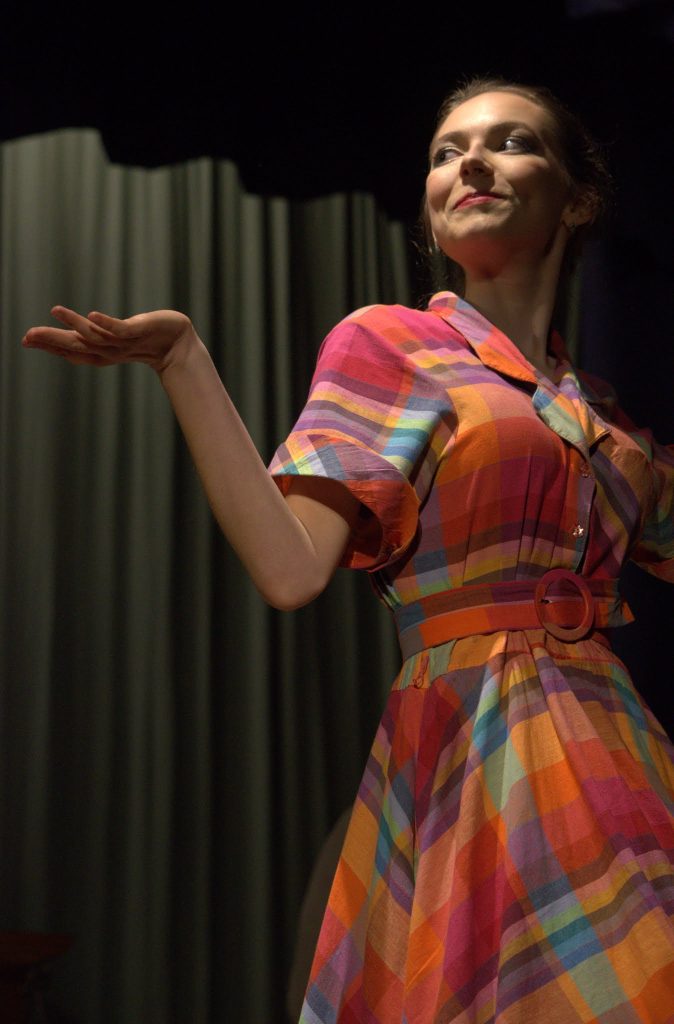
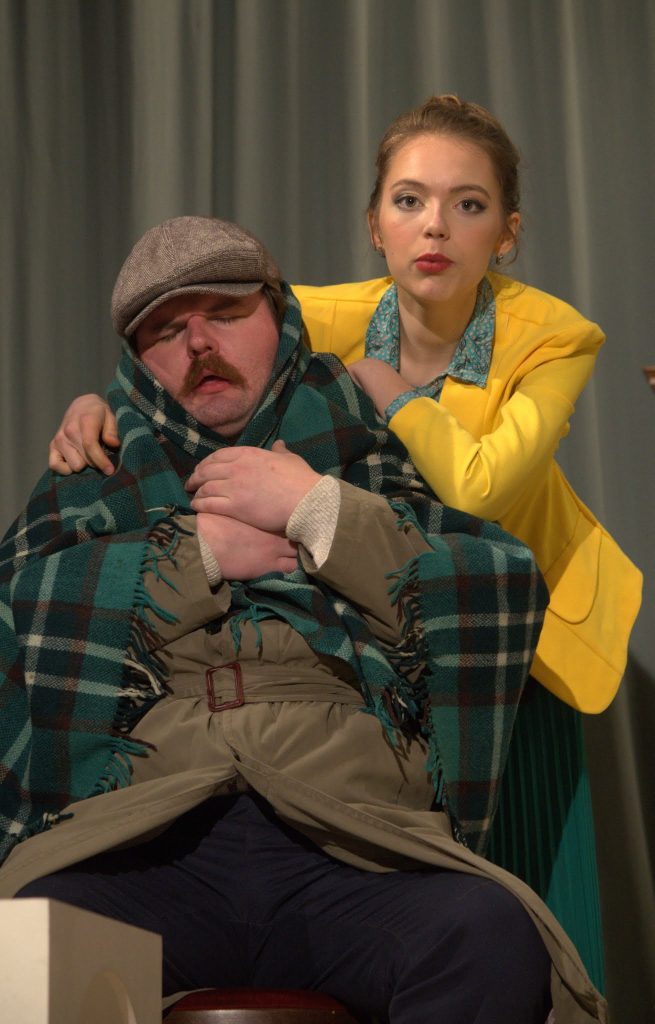
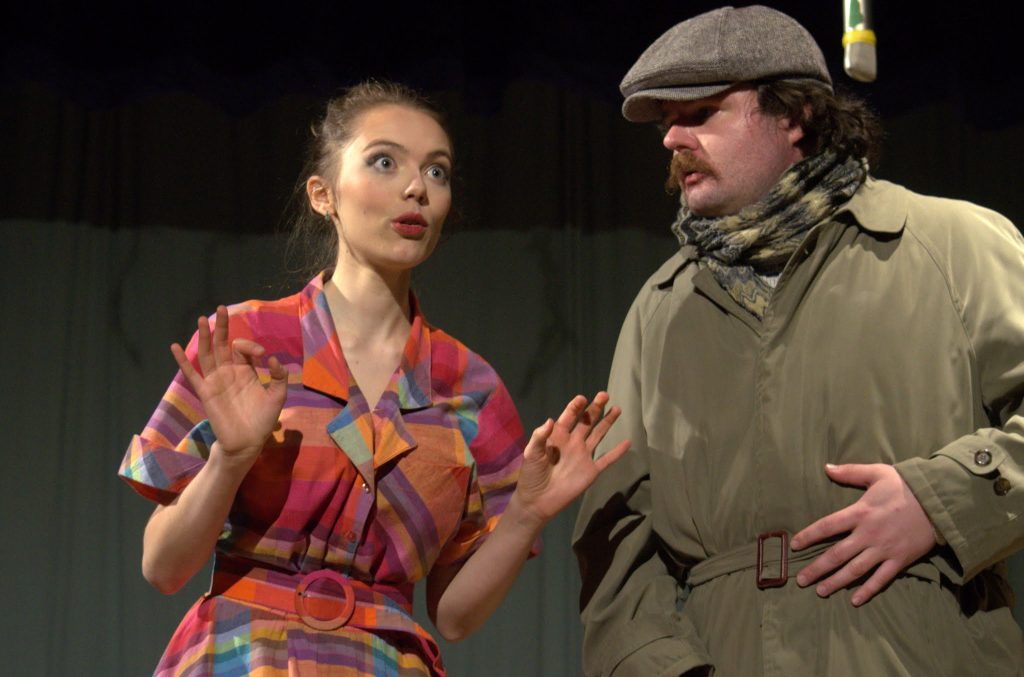
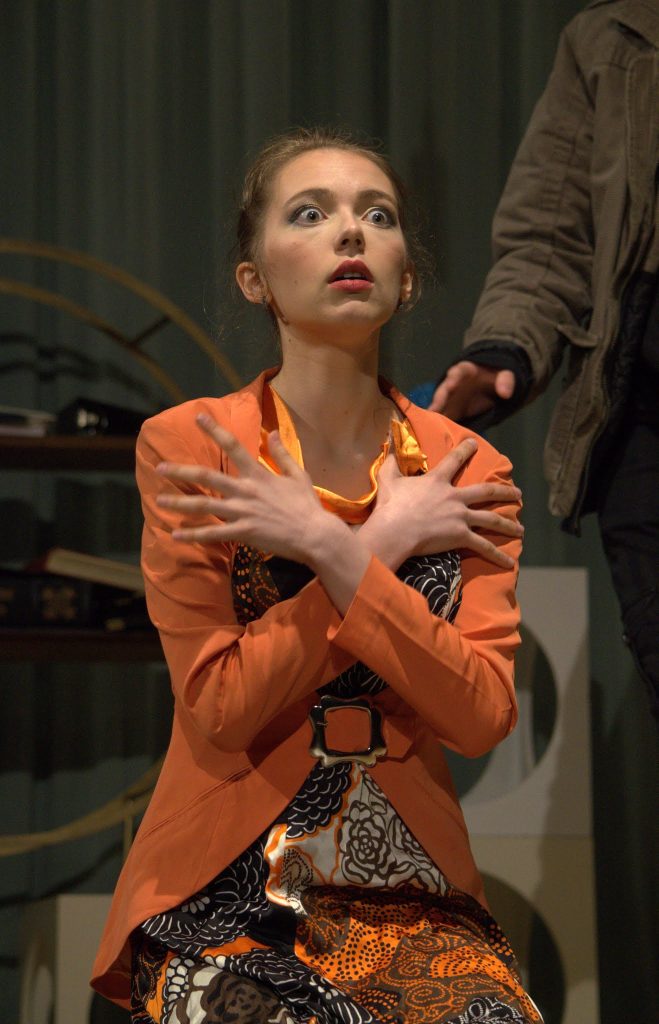
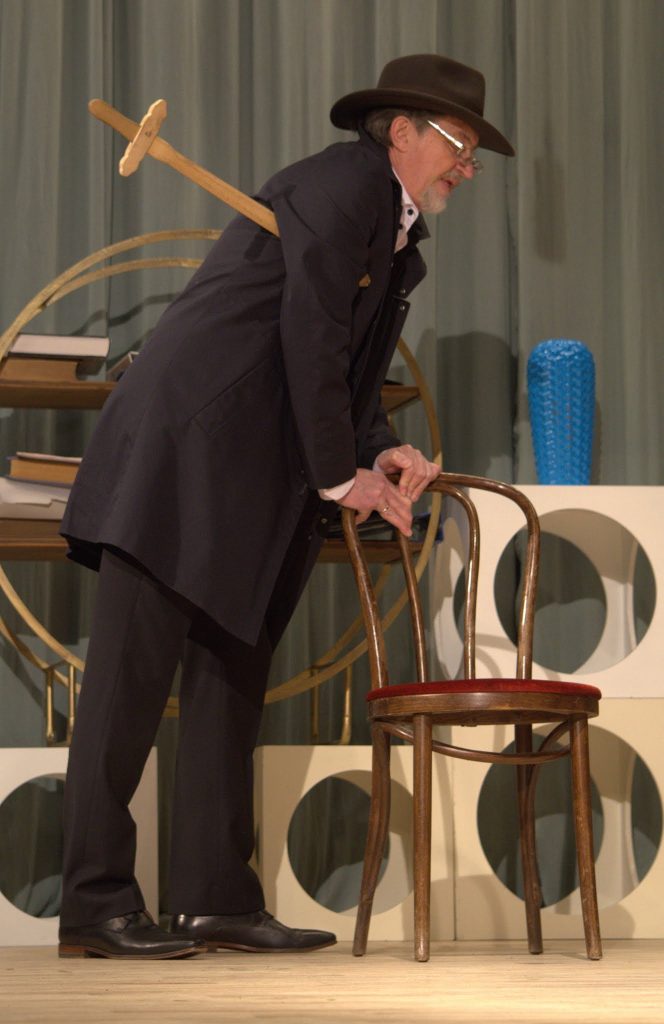
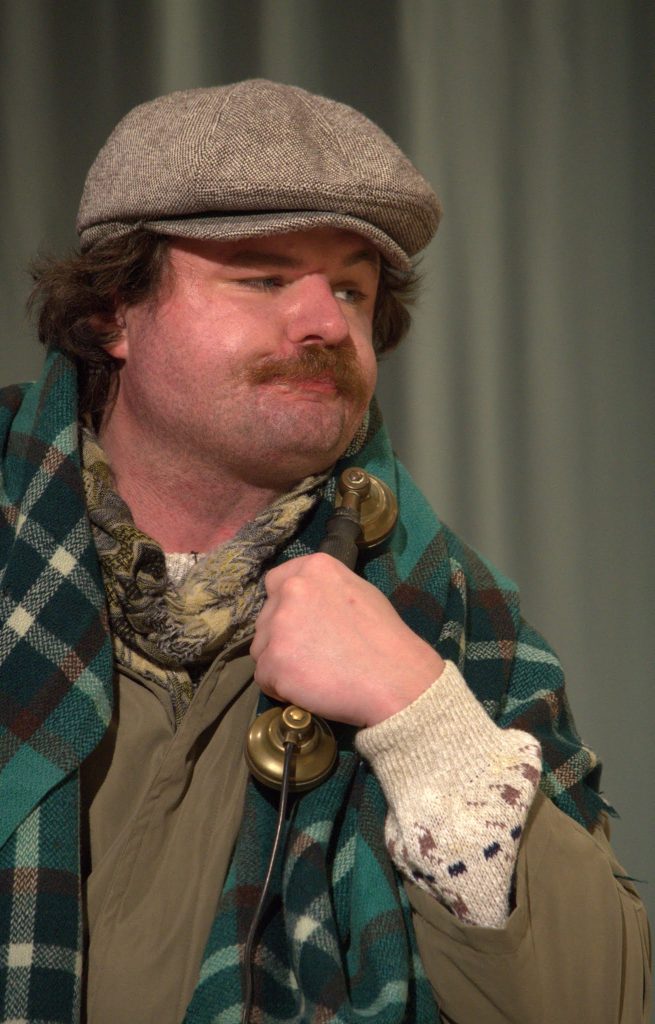
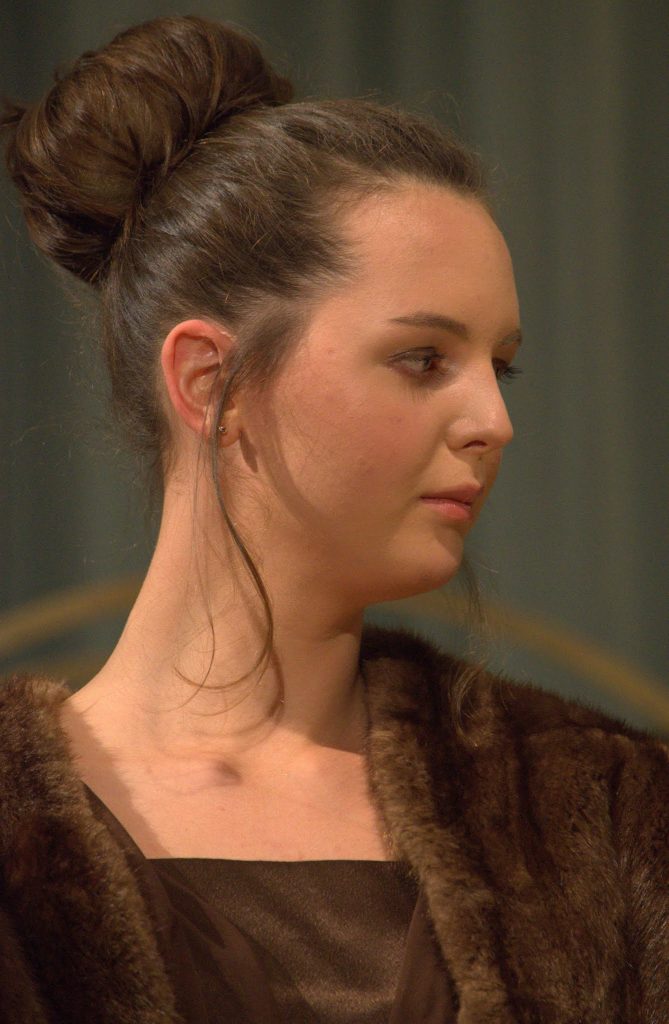
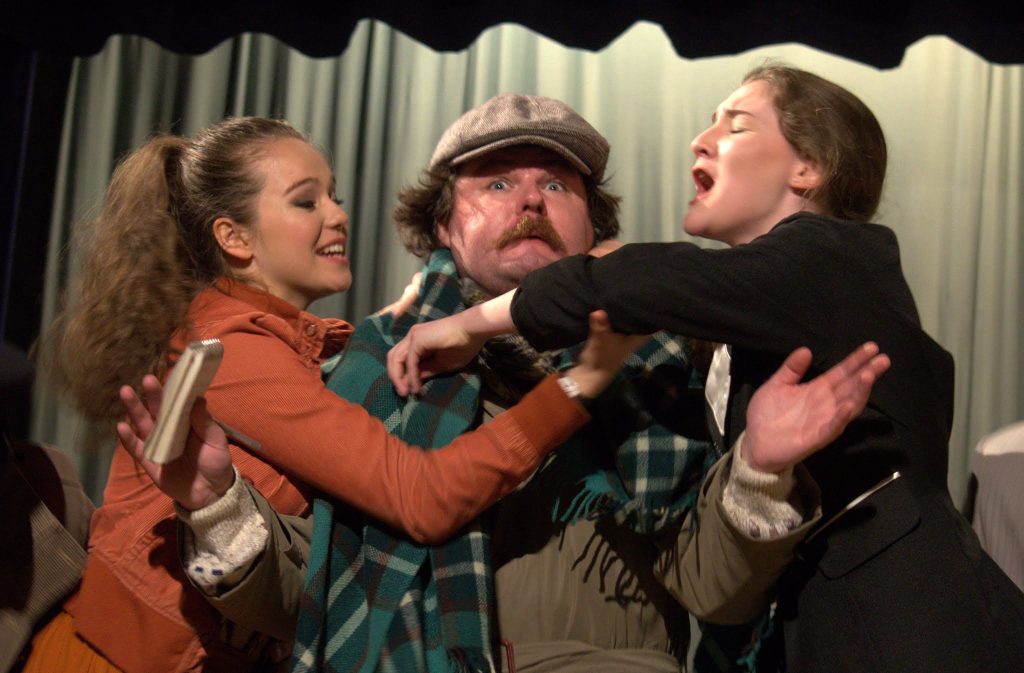
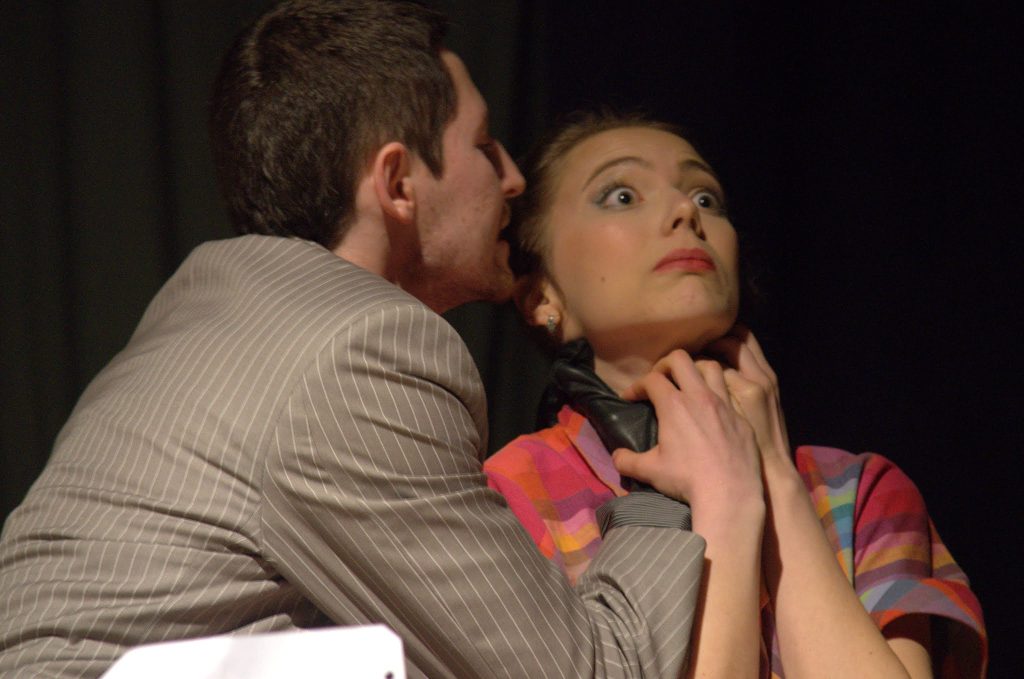
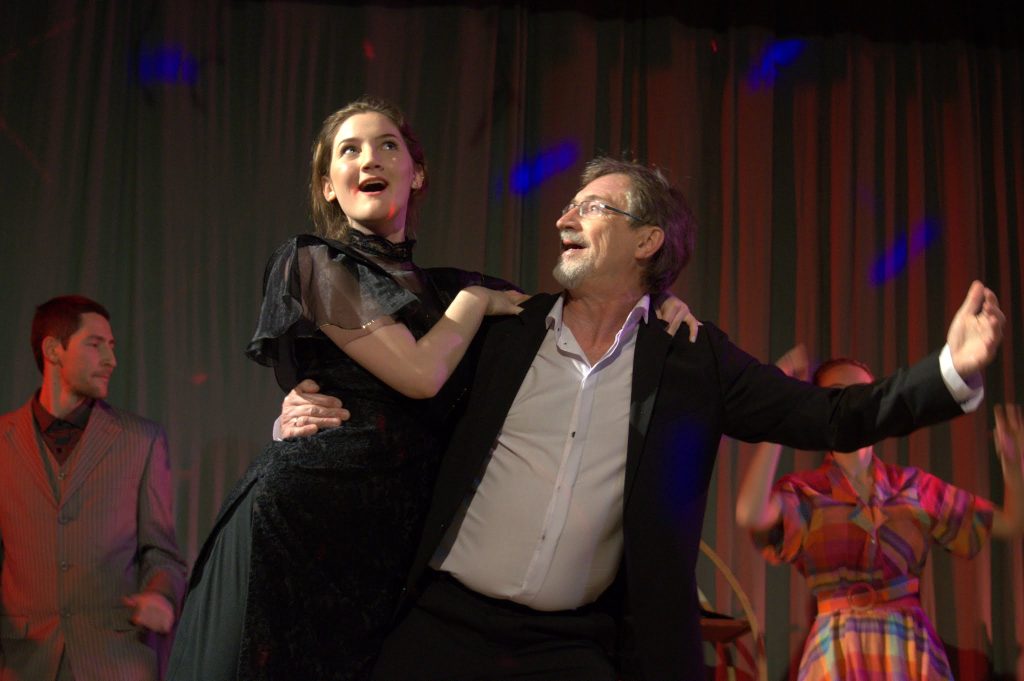
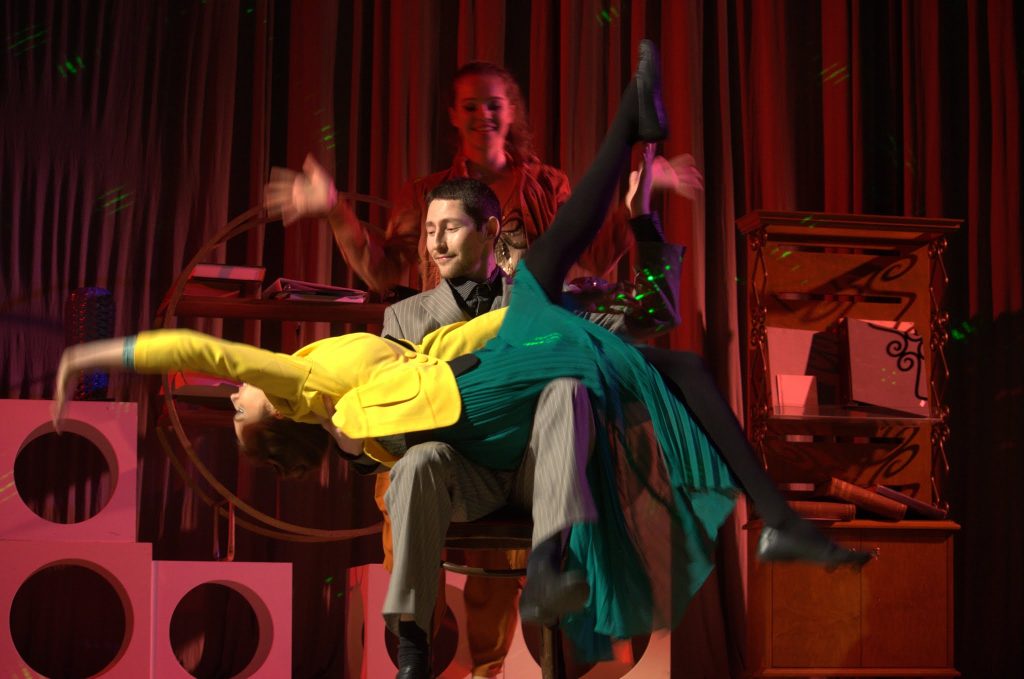
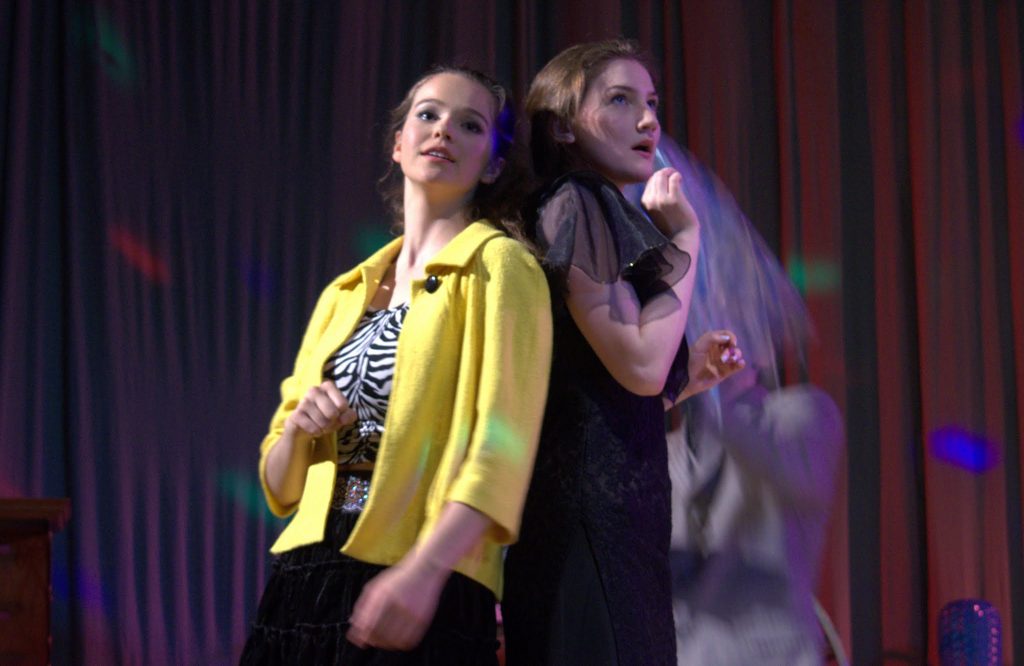
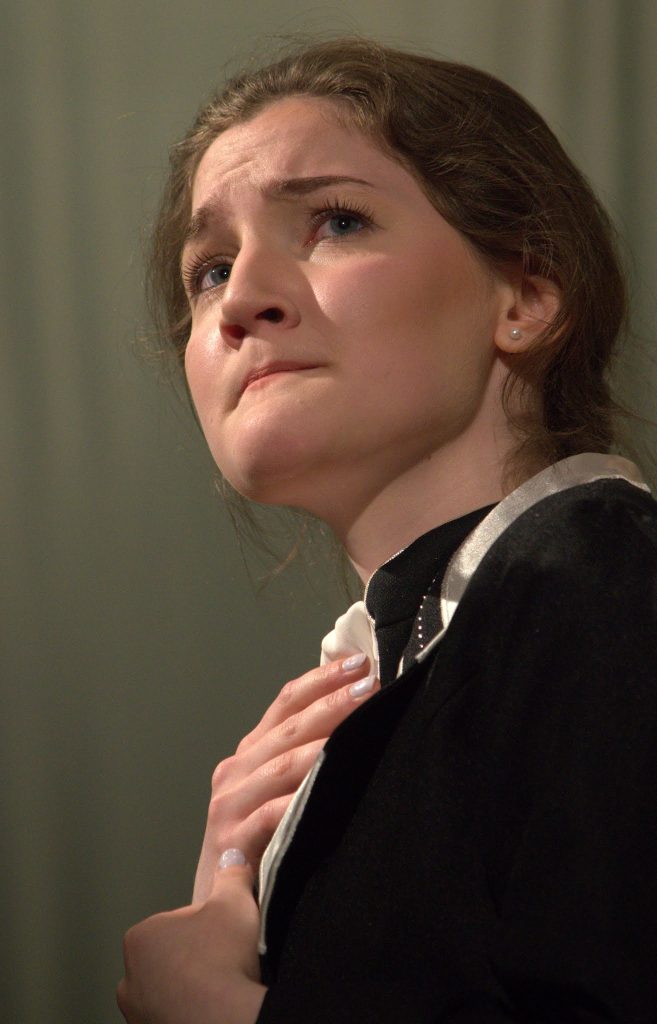
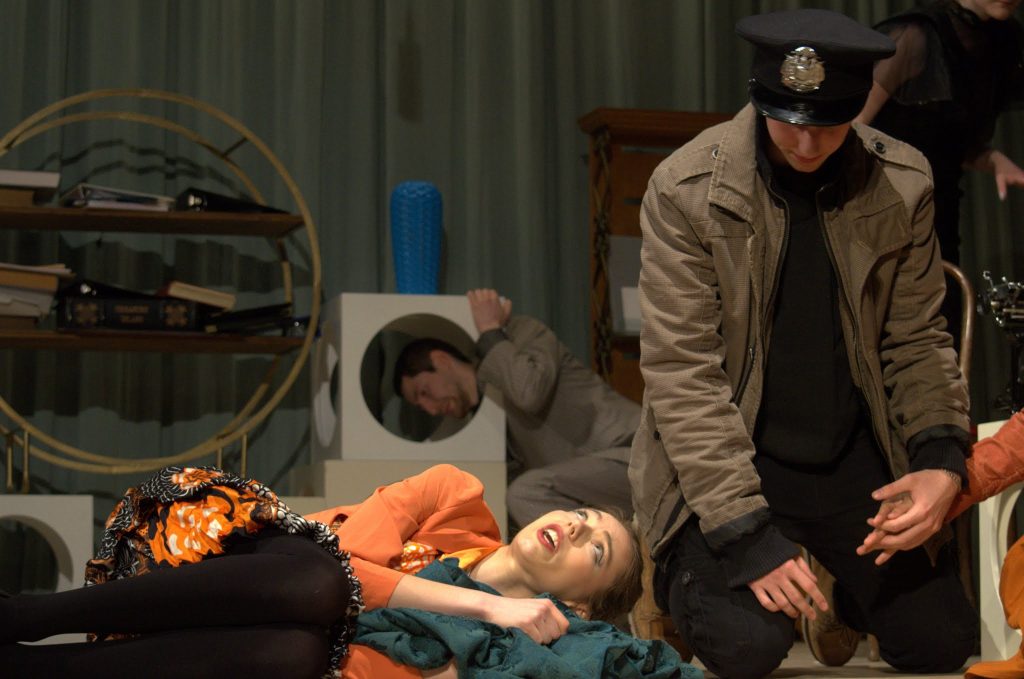
January 10, 11, 2014
Based on the play by Anton Chekhov
Our Seagull is about how a simple collection of words on a page can take flight, and change shape into something that transcends the present, the past, and sends an infinite echo into the future. As Anton Chekhov’s play persists into our time, so do the characters take on a life of their own and come to us to grace our stage, becoming not just simple, relatable people, but enormous ideas that allow us to reflect on how we see ourselves in this world.
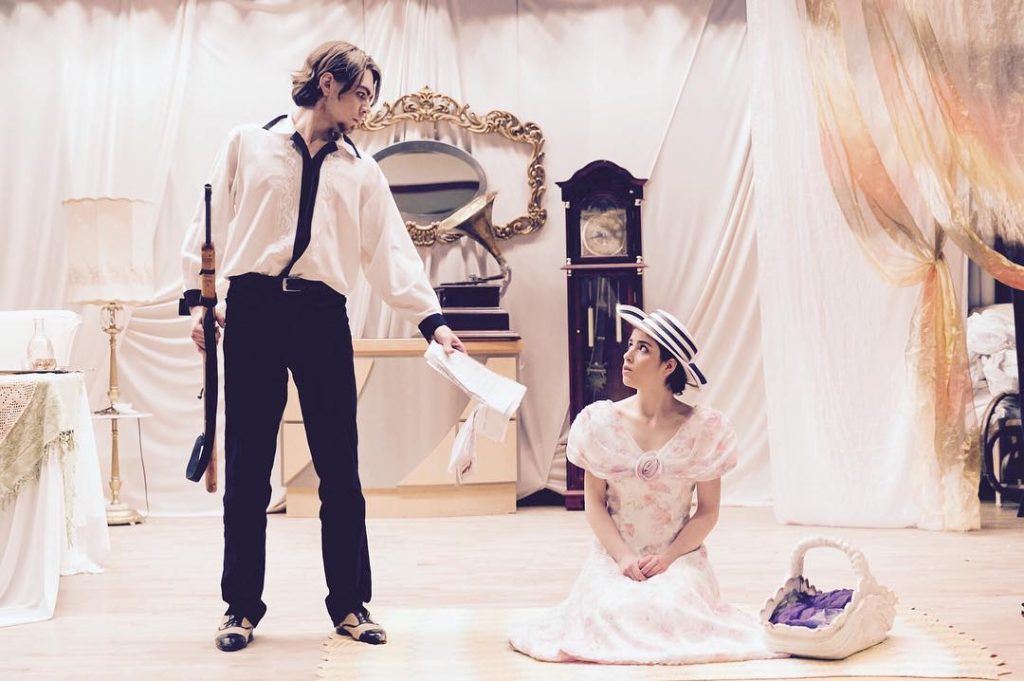
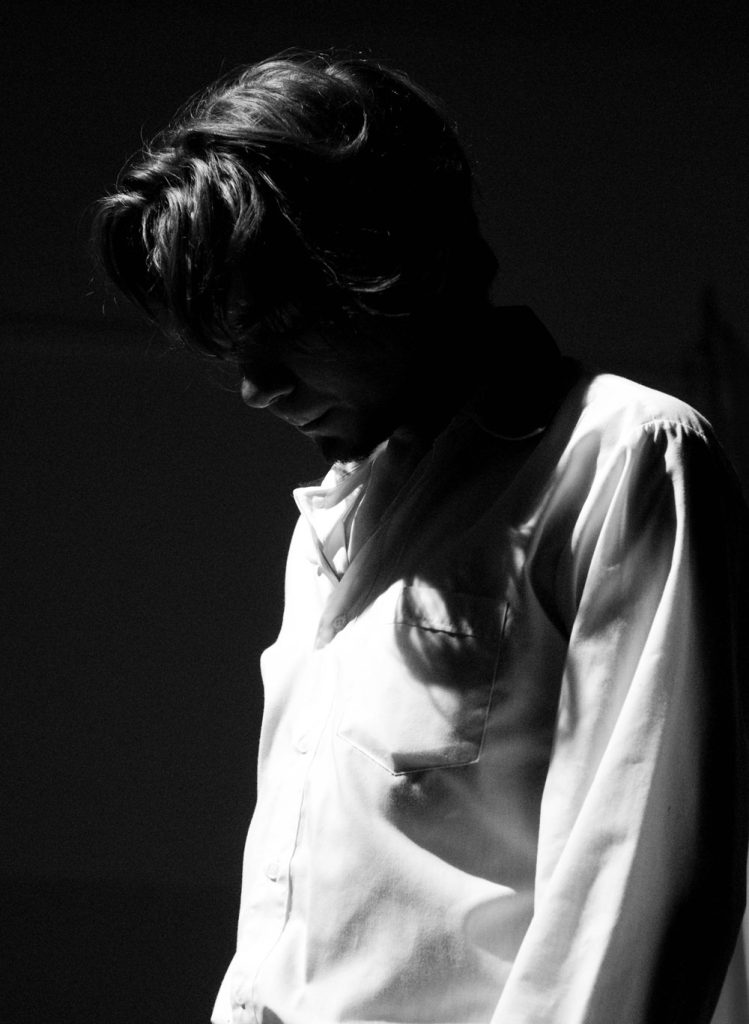
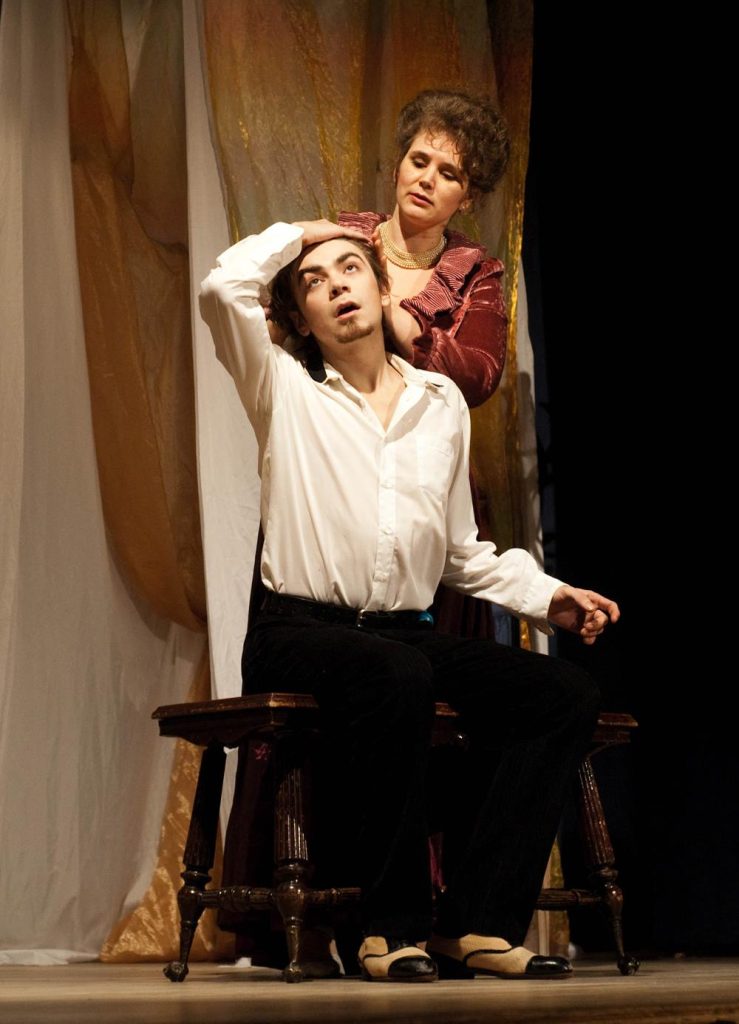
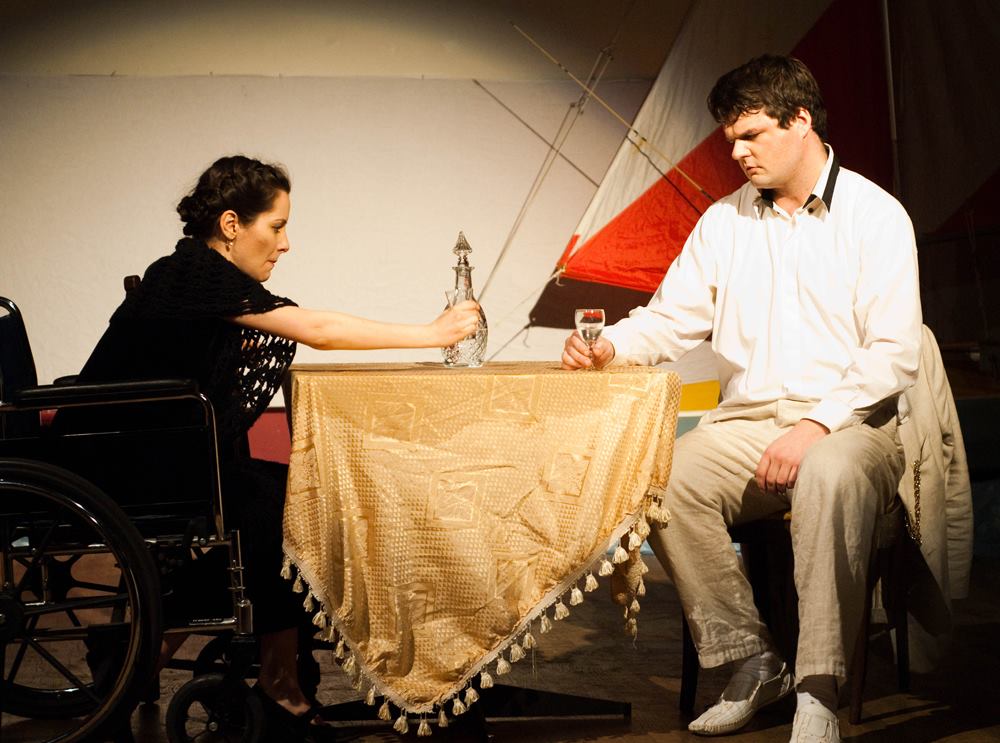
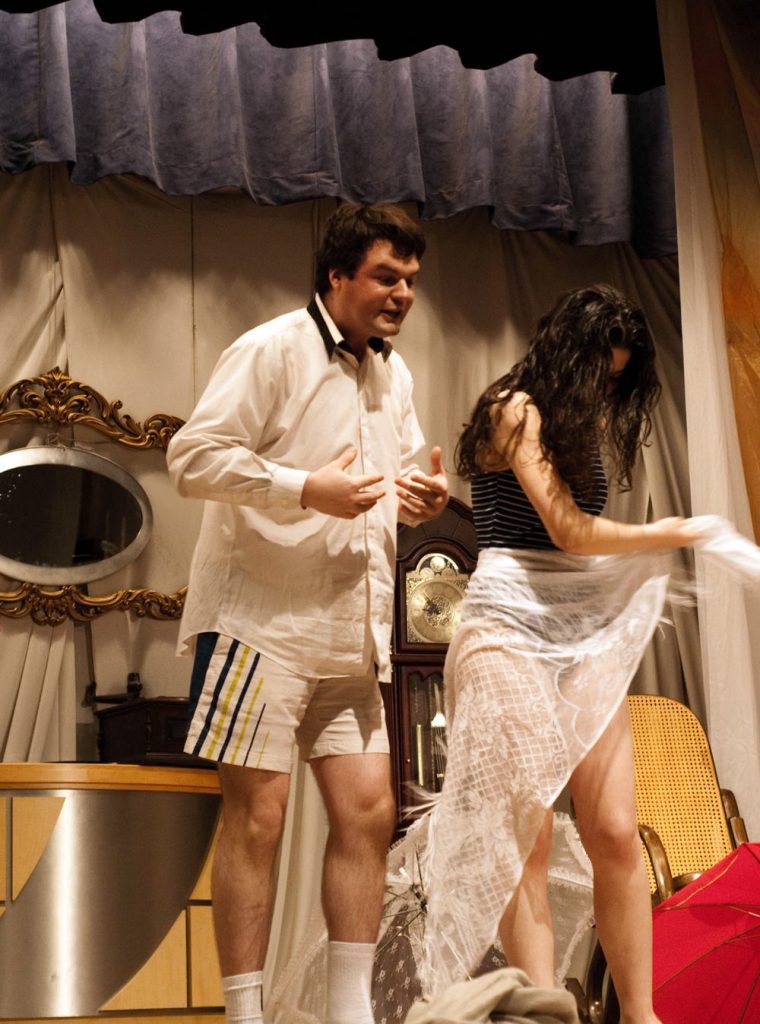
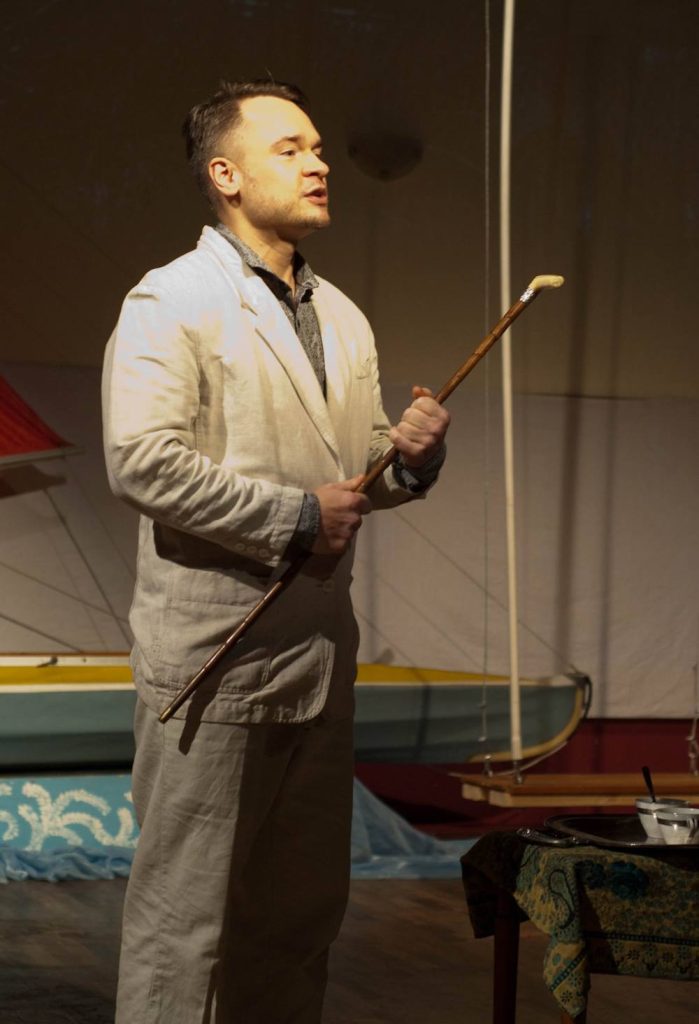


Vibrant characters, music by Alfred Schnitke, original choreography by Nadezhda Dobrianskaia, Russian and Ukrainian folk songs performed acapella by the Palme choir under the direction of Kateryna Kiselyeva - all of this creates a mystical and extraordinarily fantastic atmosphere of Gogol’s works, based on the epic, prosaic poem Dead Souls. In this stage production directed by Oleg Palme there is an attempt to complete the author’s task - the folk souls are symbolically torn out of greedy hands, so that they may obtain their long-awaited rest.
Chichikov (Egor Revenko) engages in dialogue, if not conflict, with Gogol (Eugene Grabovy). He is bargaining not with land owners, but with dangerous mystical creatures - the owners of dead souls. Korobochka (Yana Khoudak), hovers as a witch above the stage, reminiscing about how a seductive devil appeared in her dreams . Plyushkin (Alexander Kulyashov), also a demon, switches between hiding, then pulling out a giant sword to attack Chichikov, then cunningly trying to poison him. The dead souls are also not just an idea on paper. Just like common folk, they come out onto the stage as a choir of dancers - an element of ancient Greek theatre - but in imagery that fits the ethnic atmosphere. The souls dance. The people revel and sing. Nikolai Vasilievich is on screen, concerned about the folk souls.
